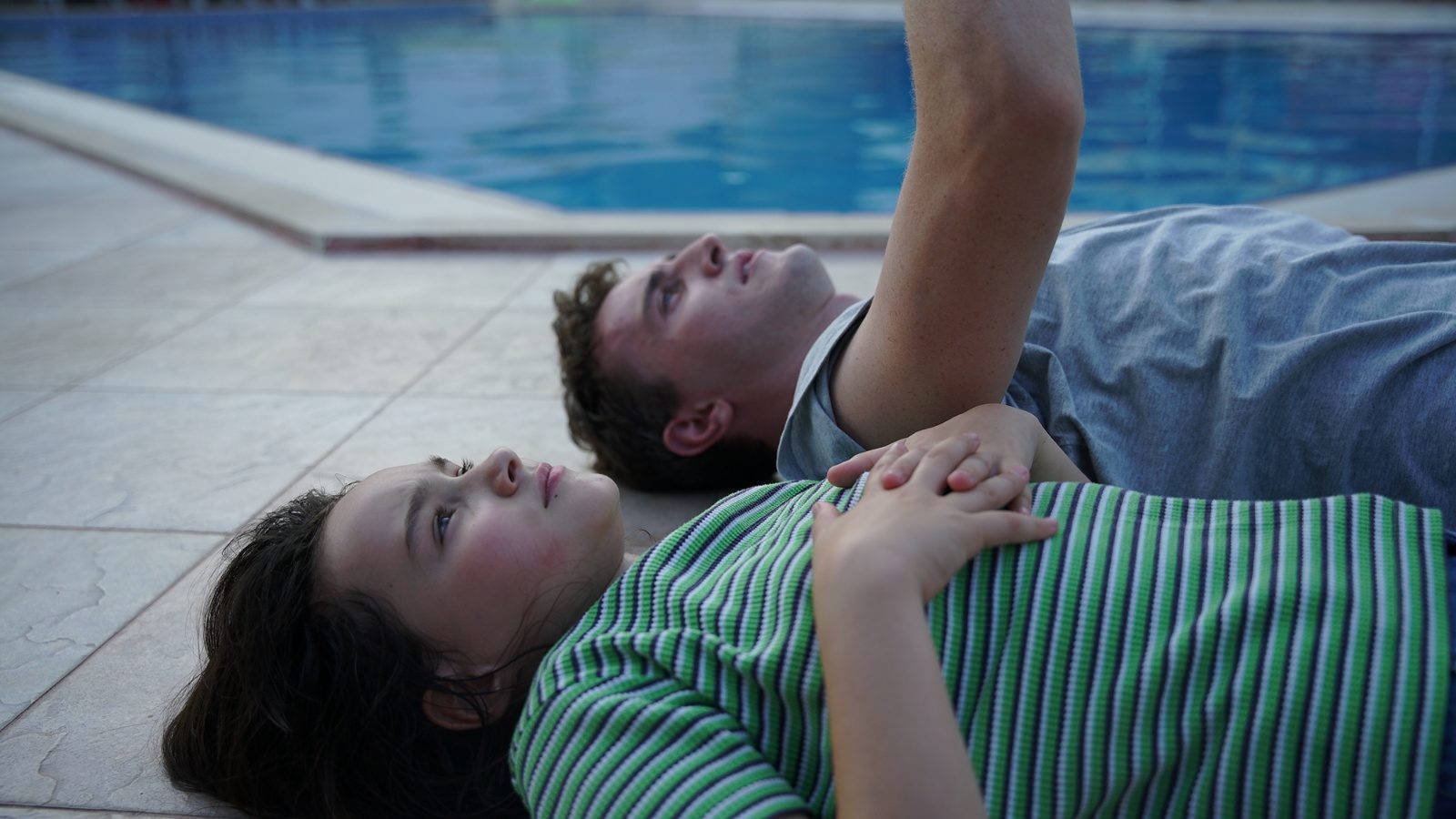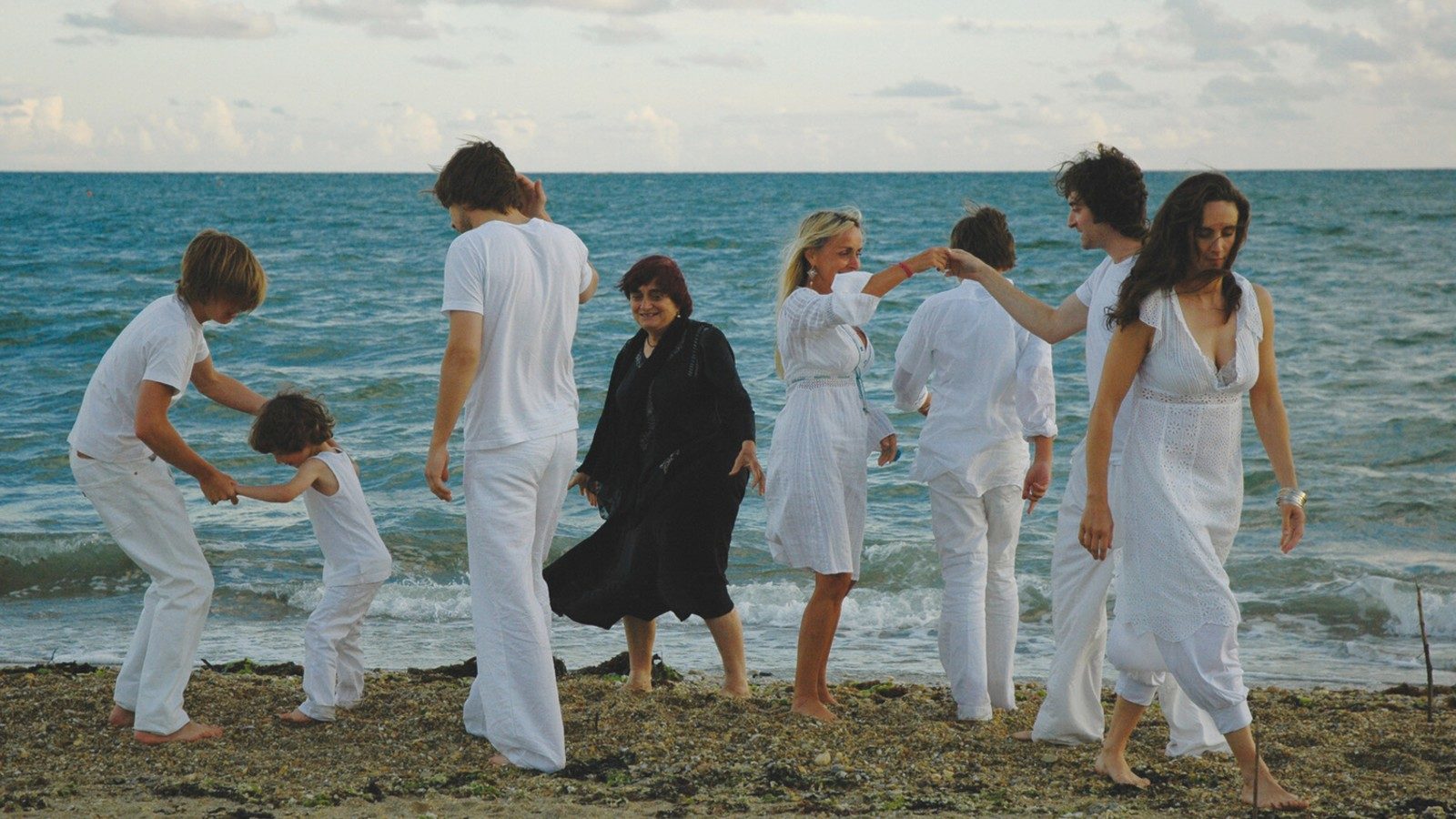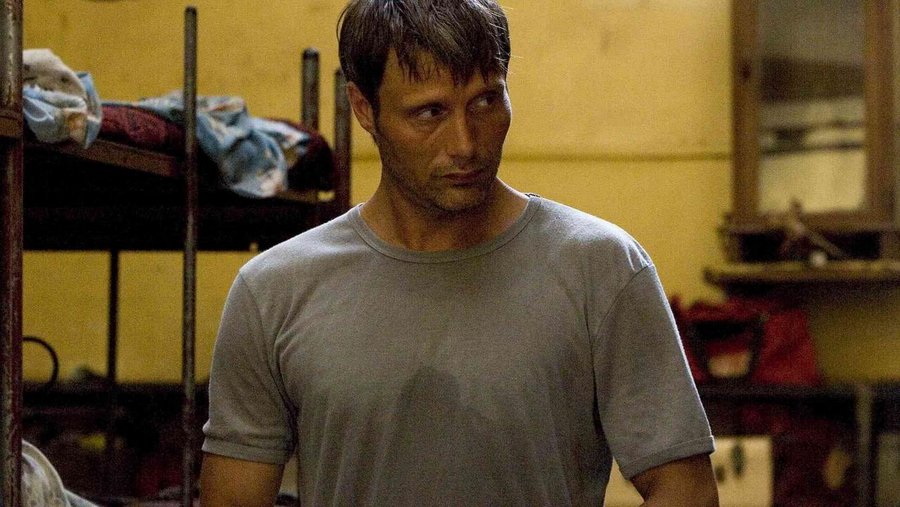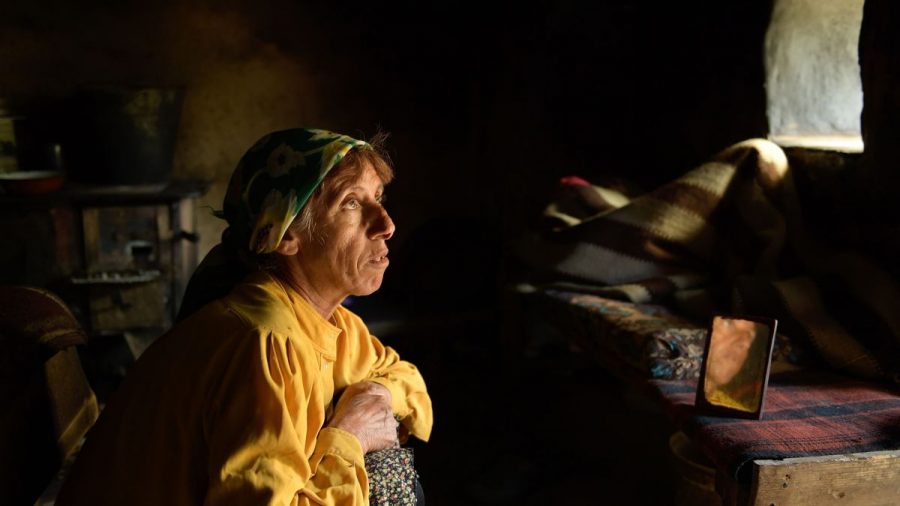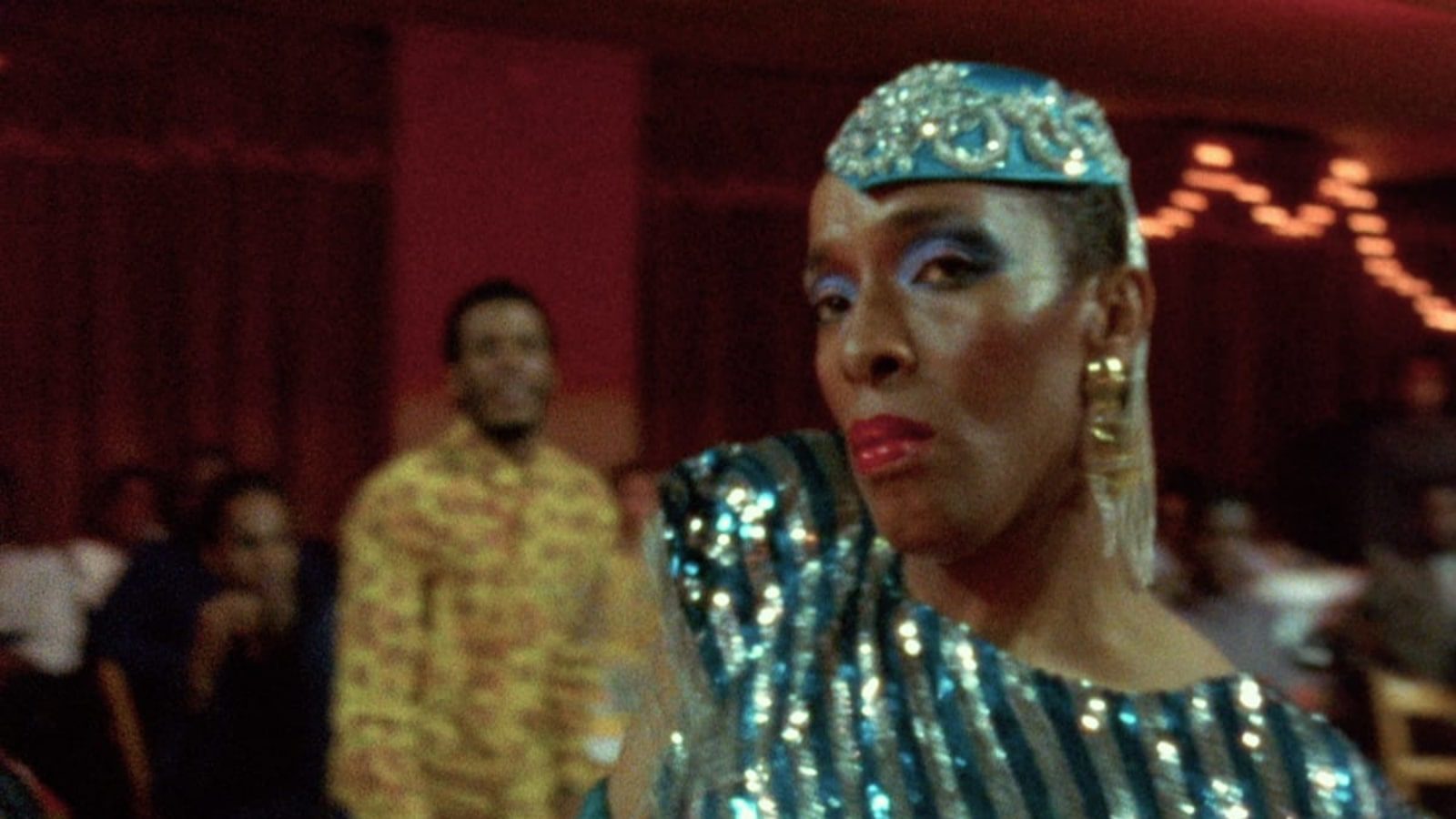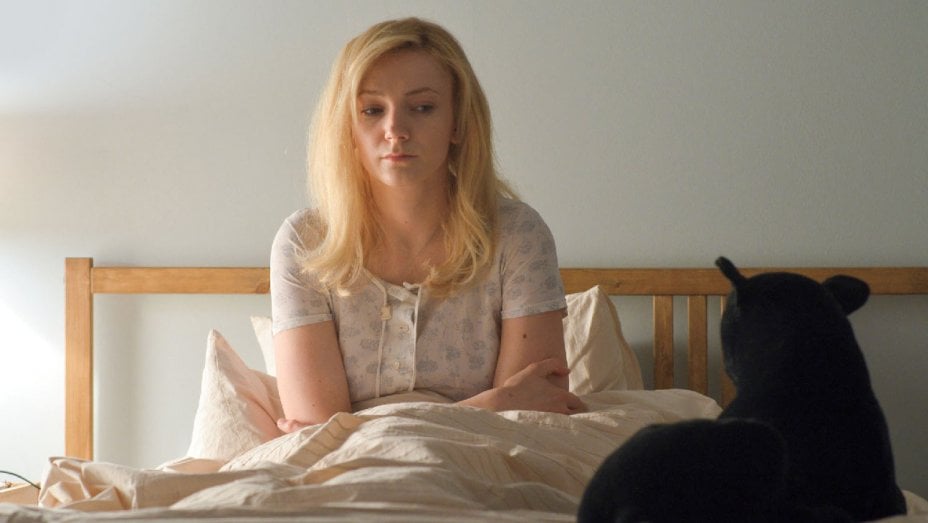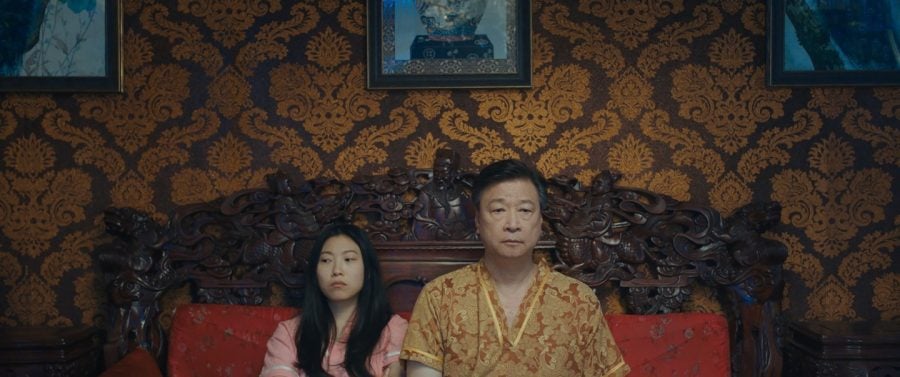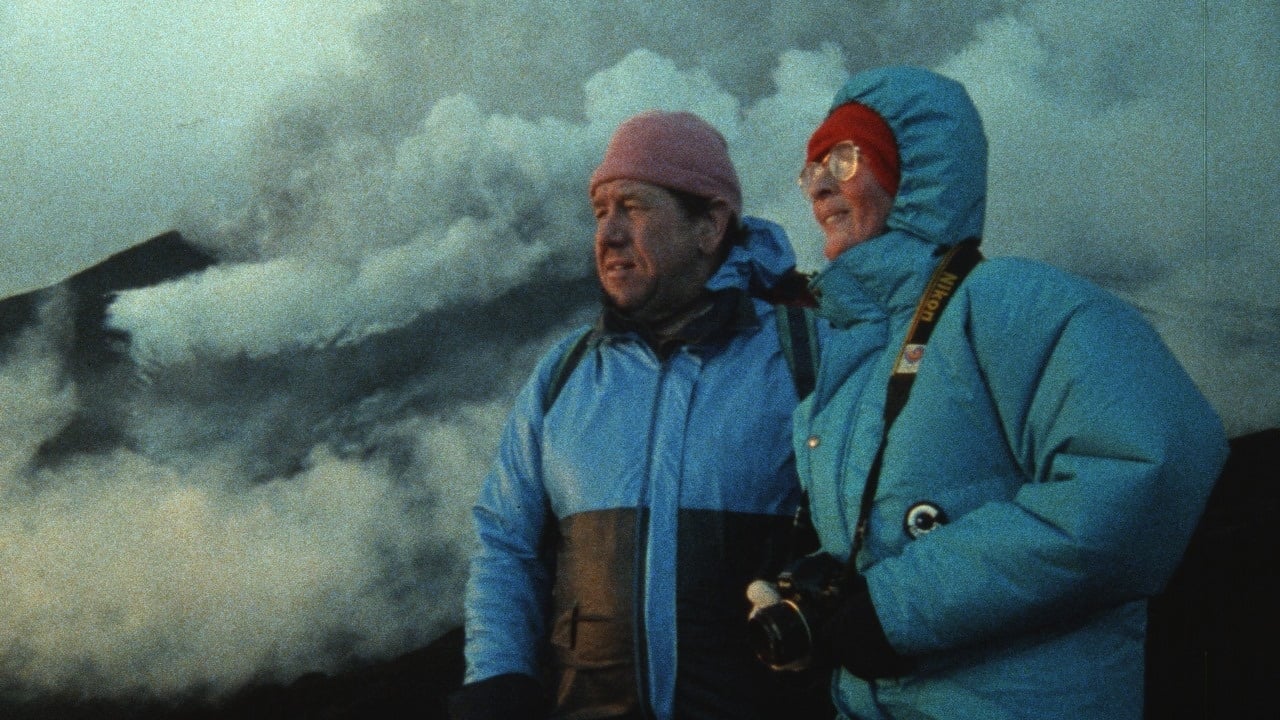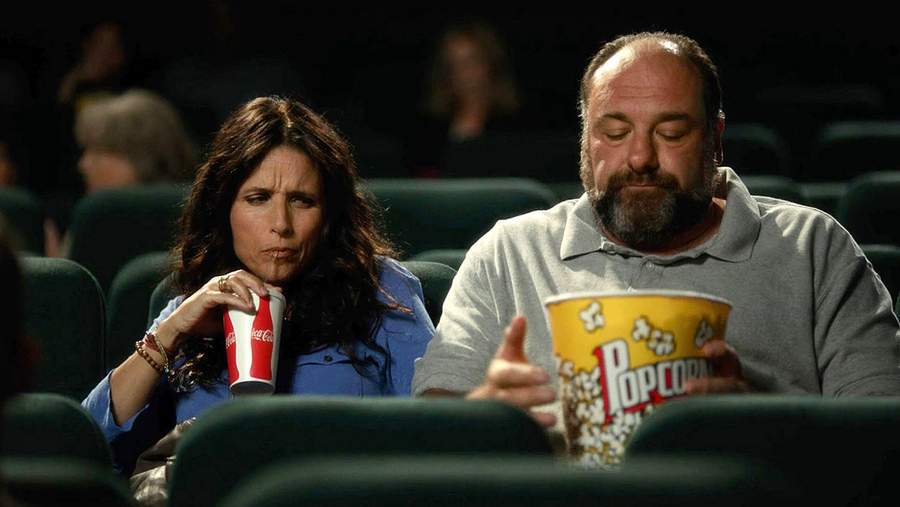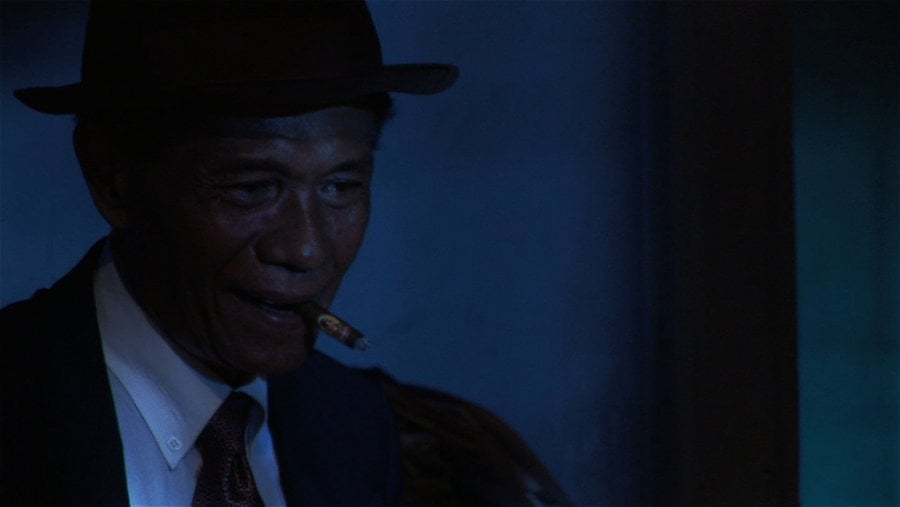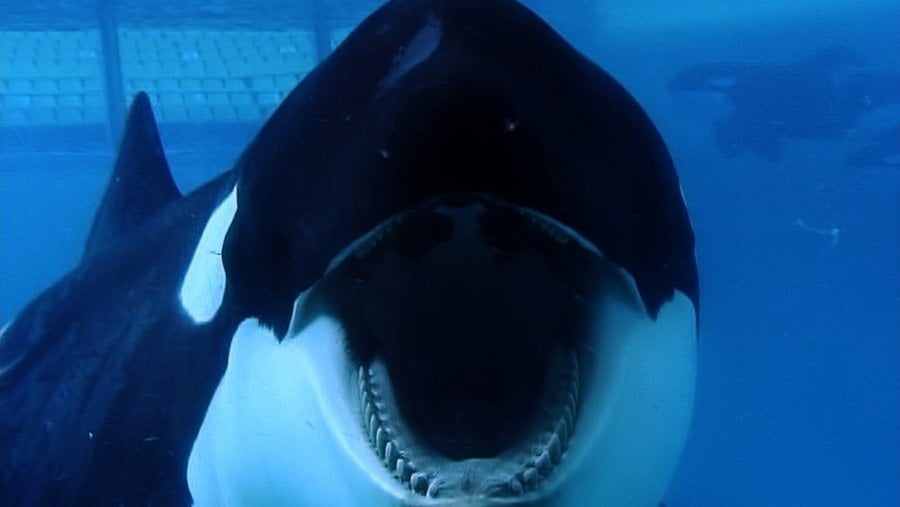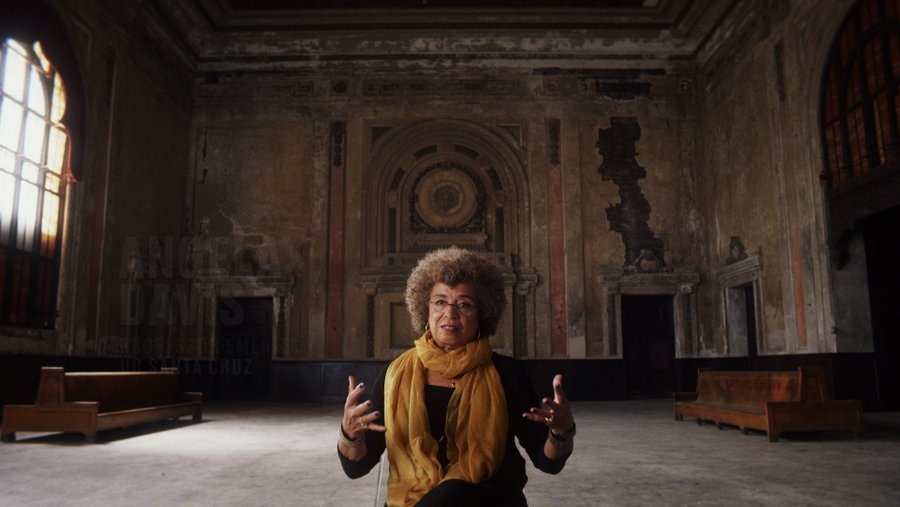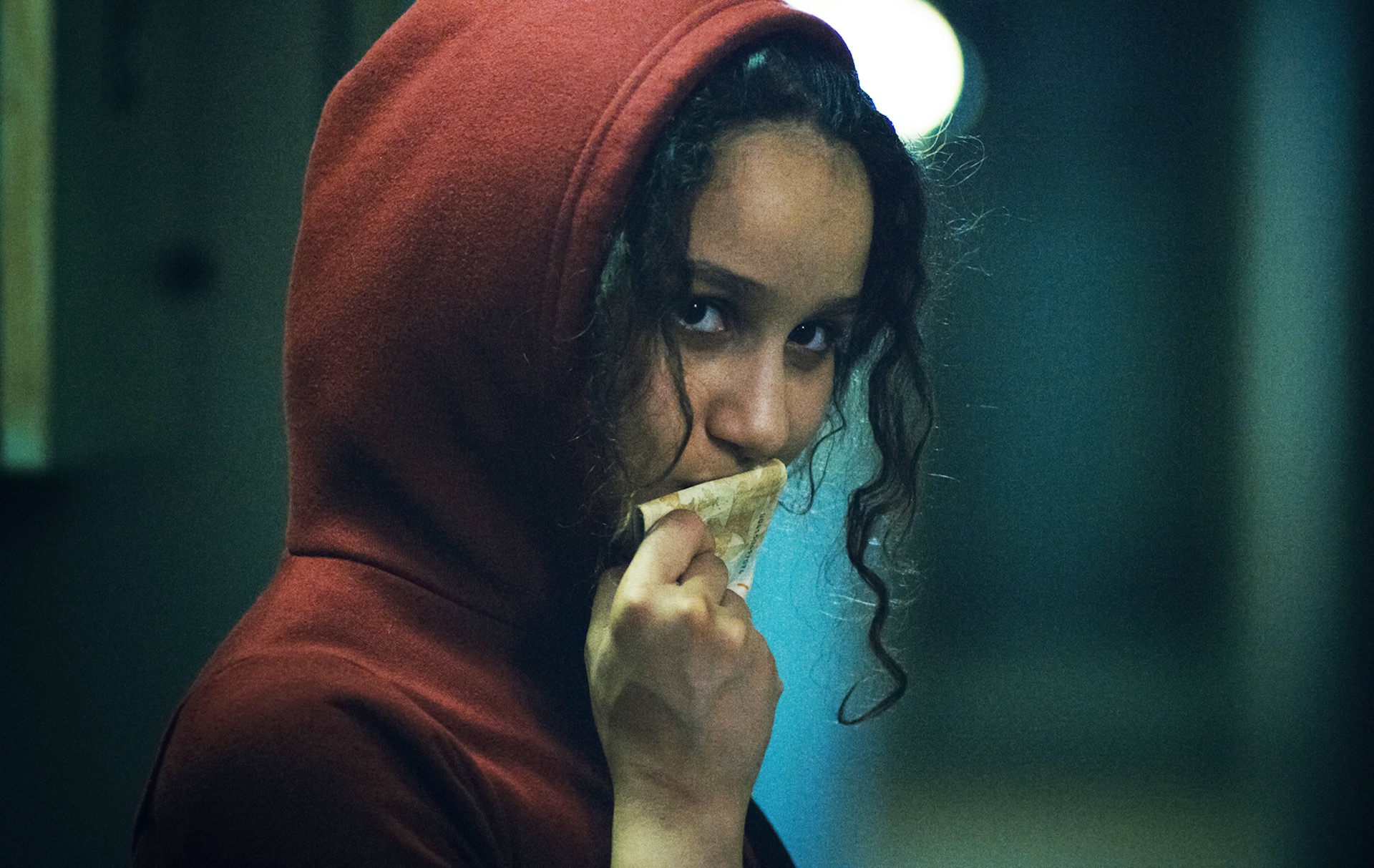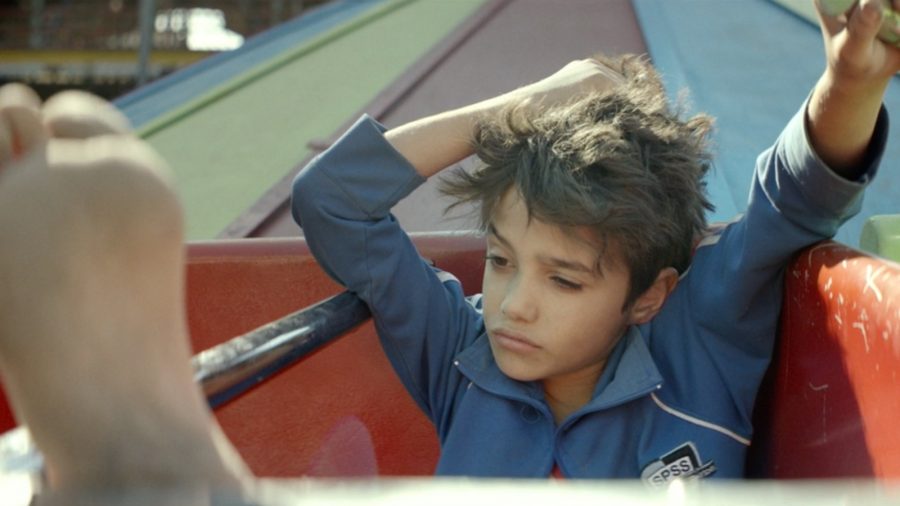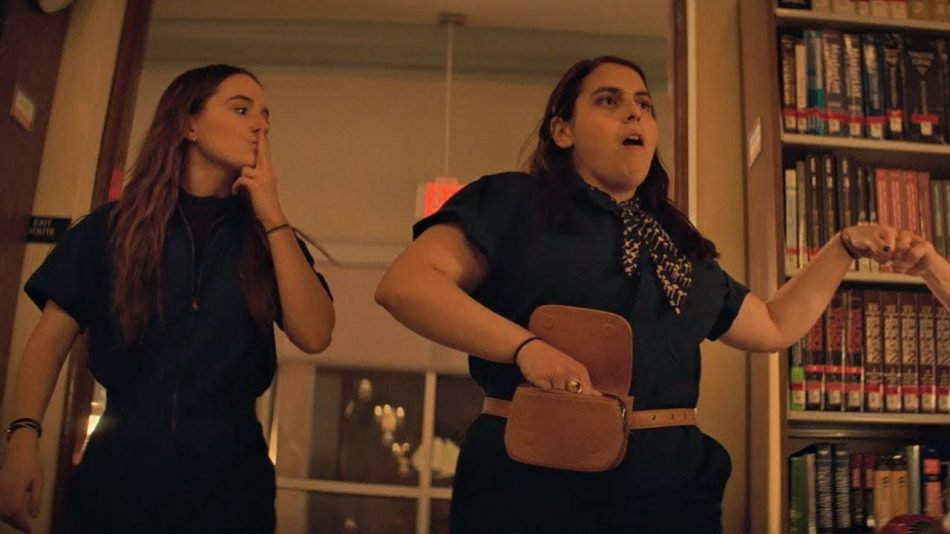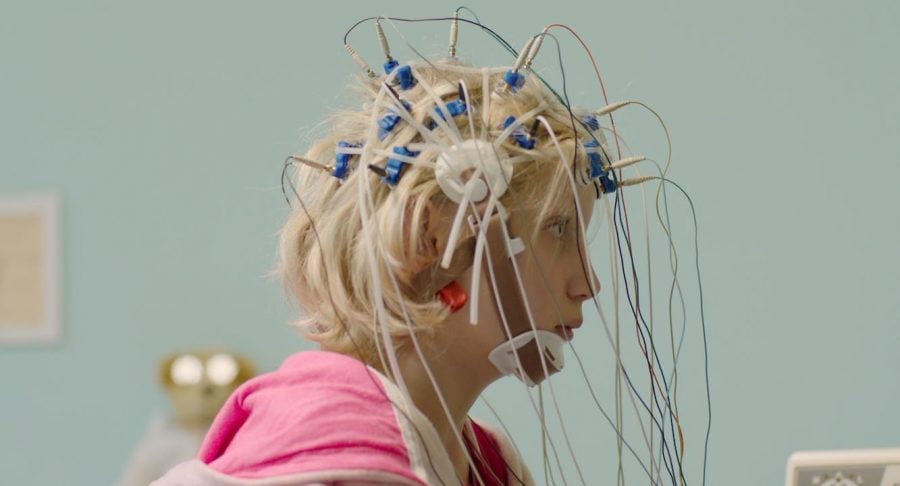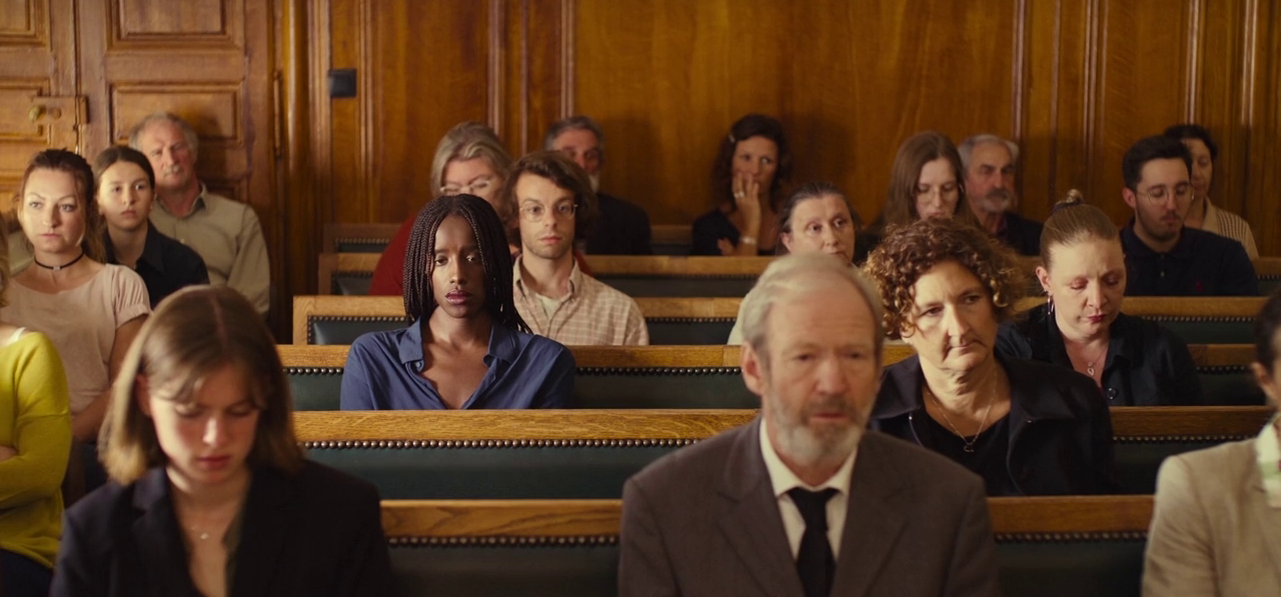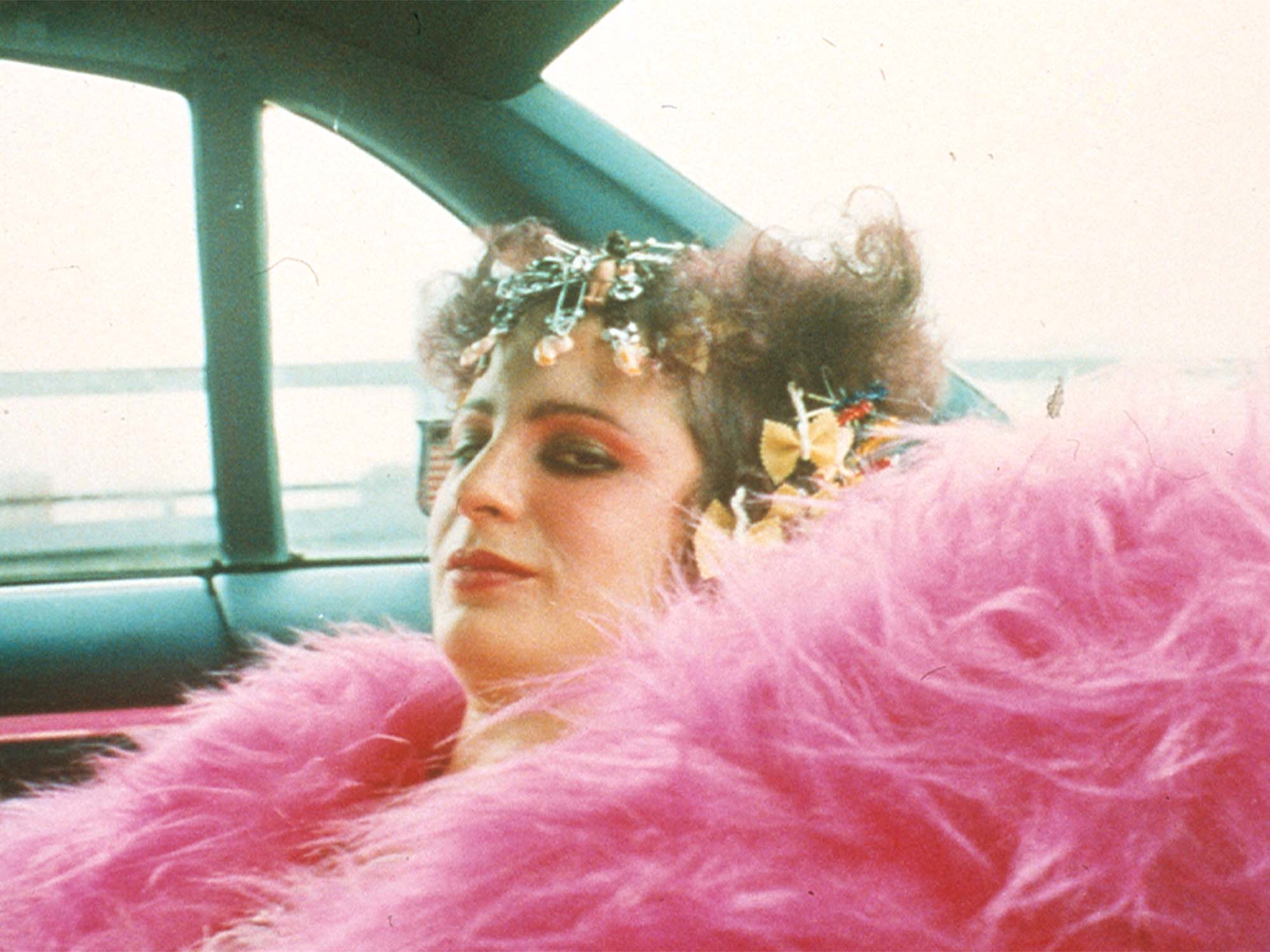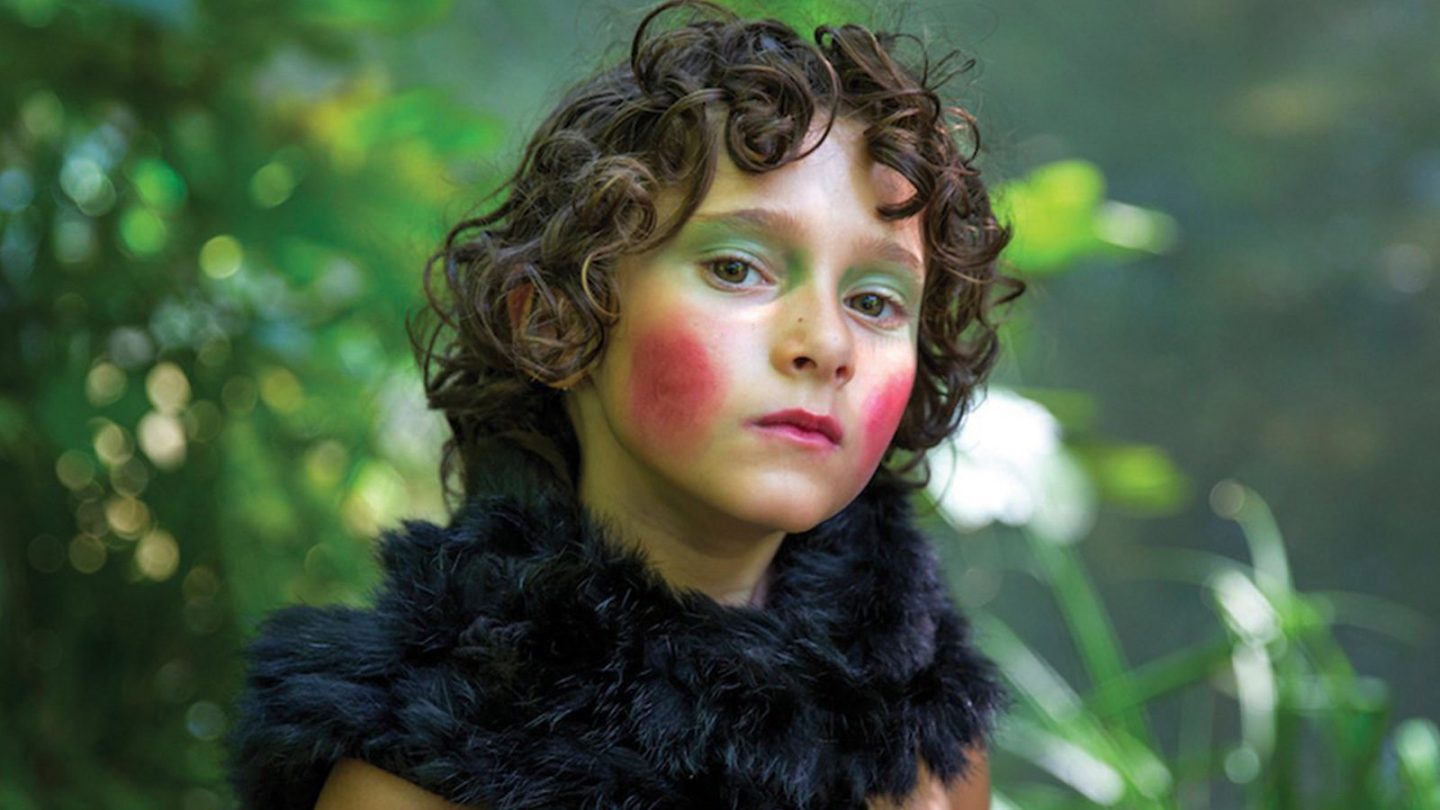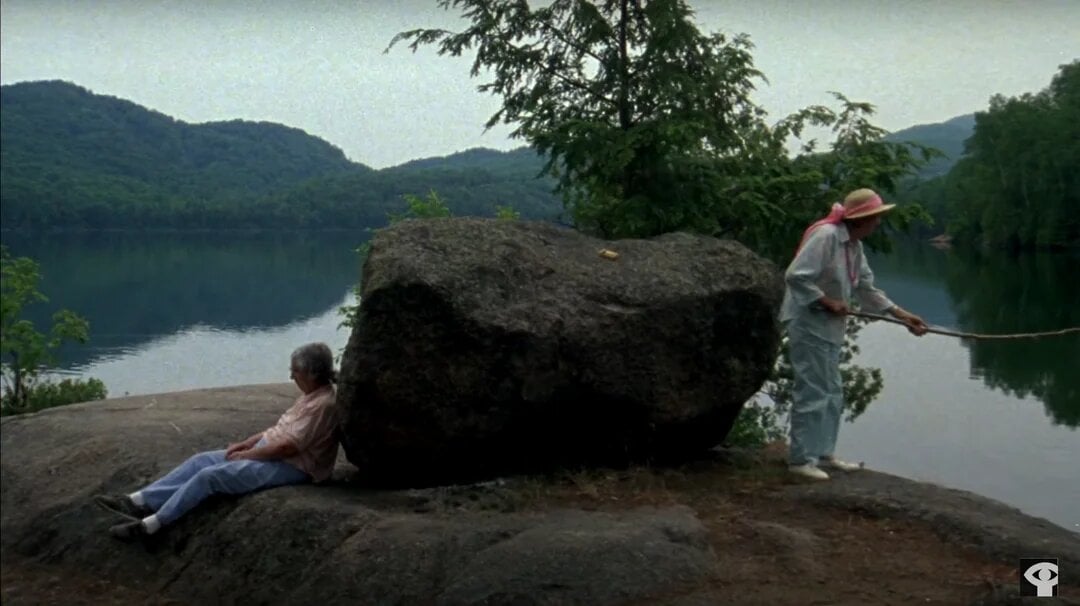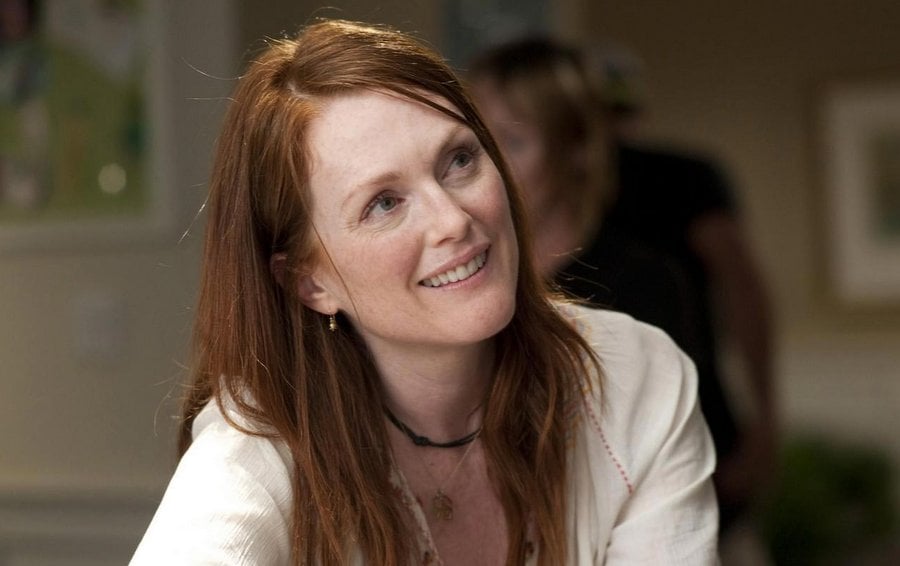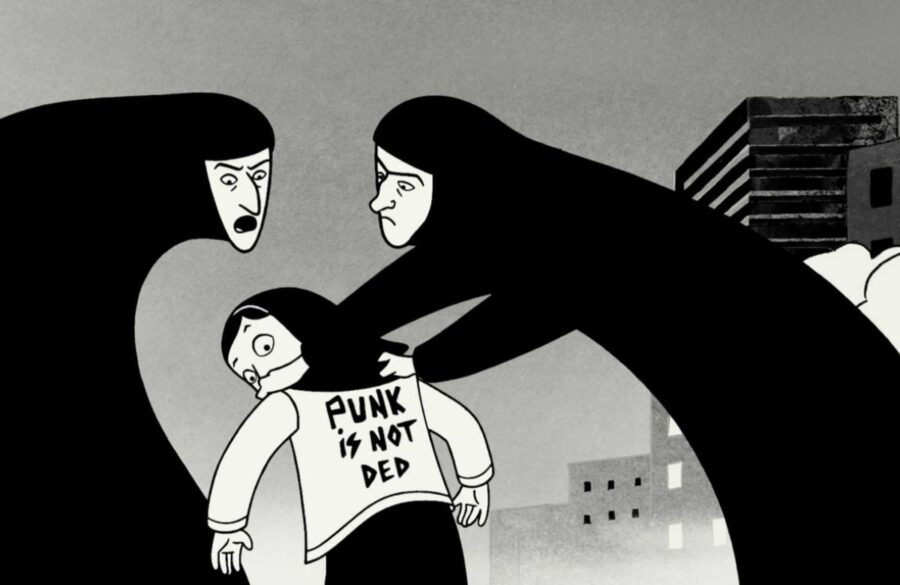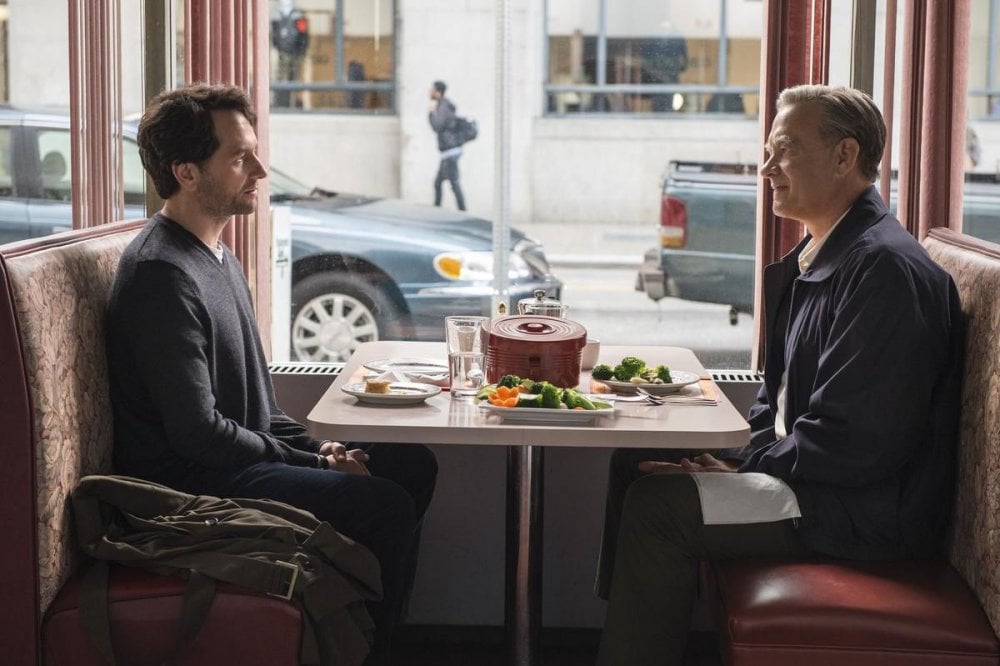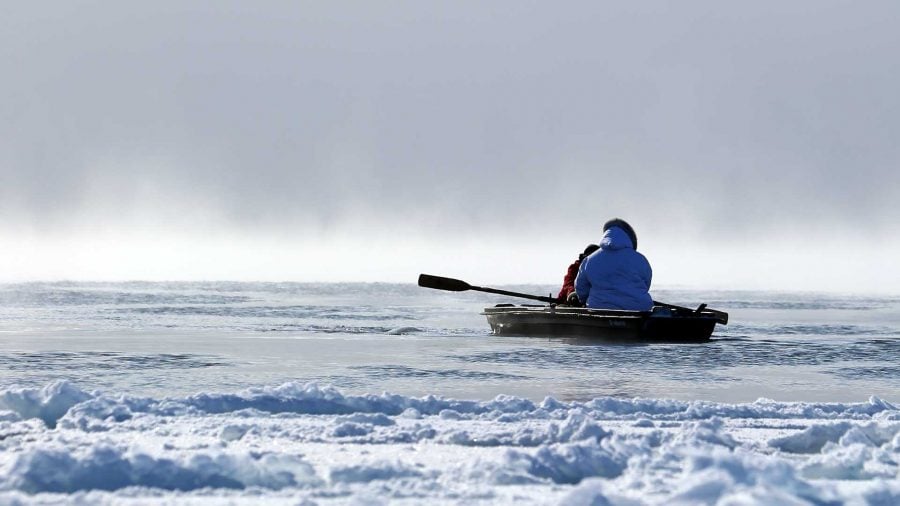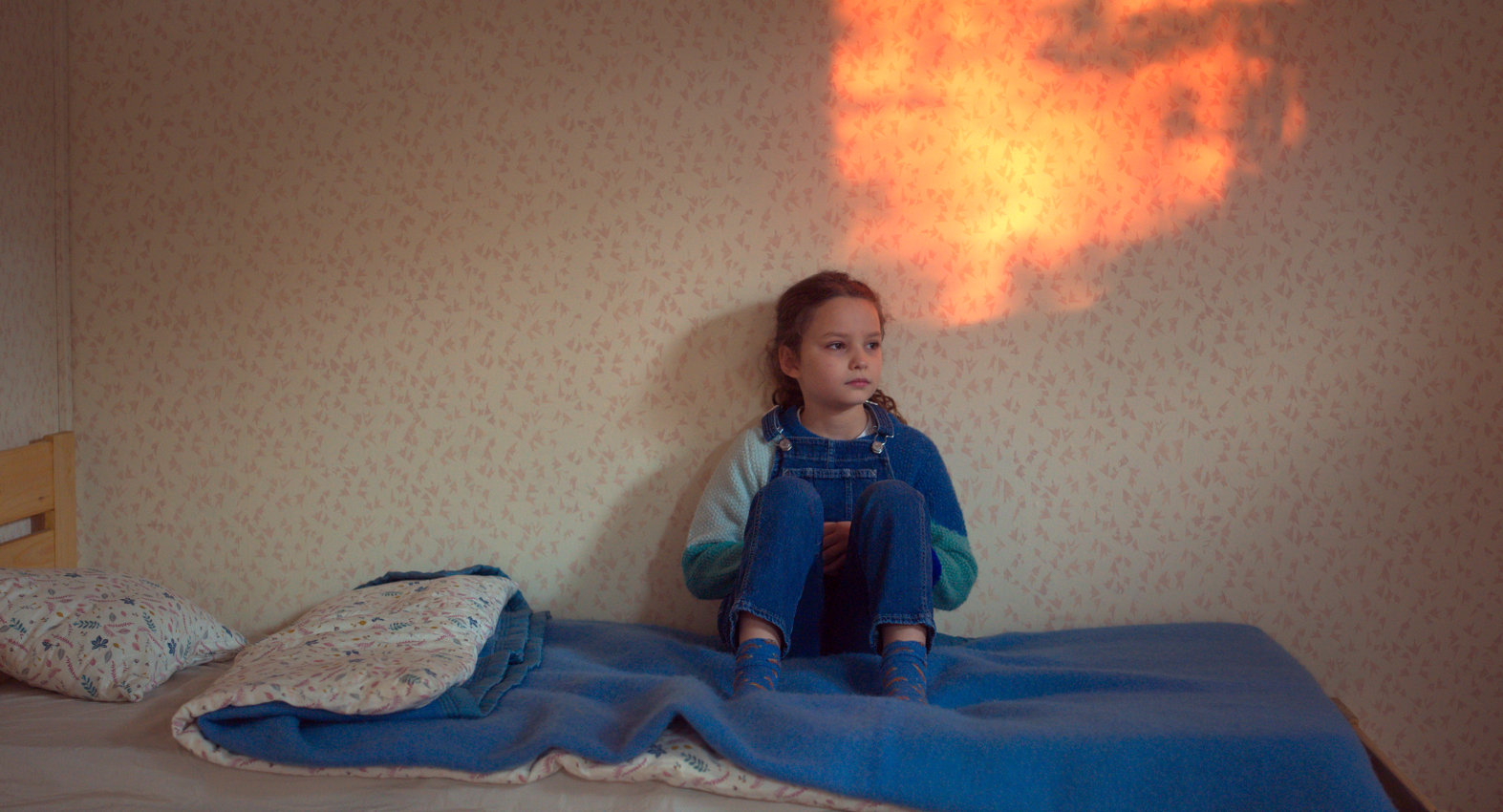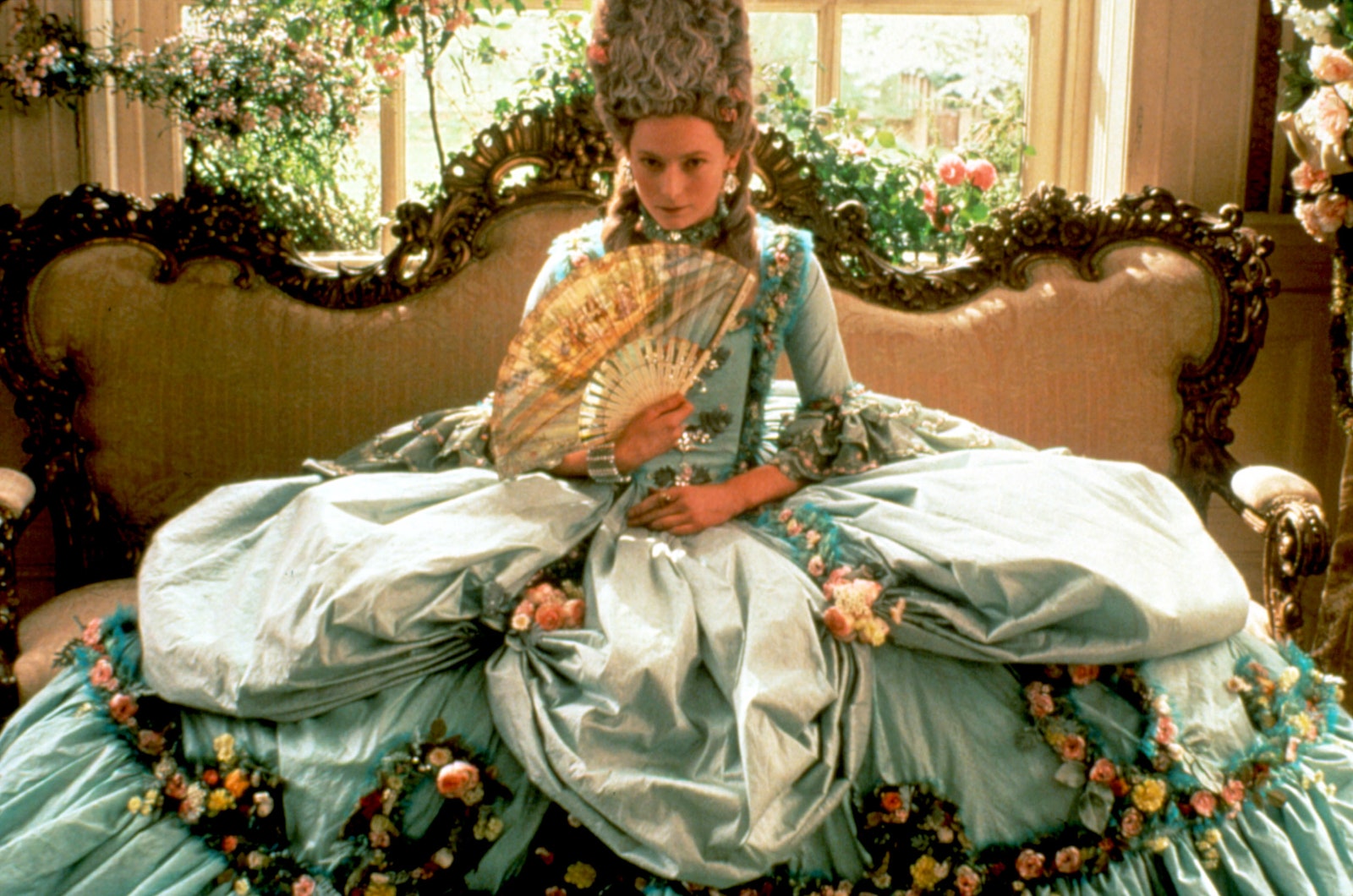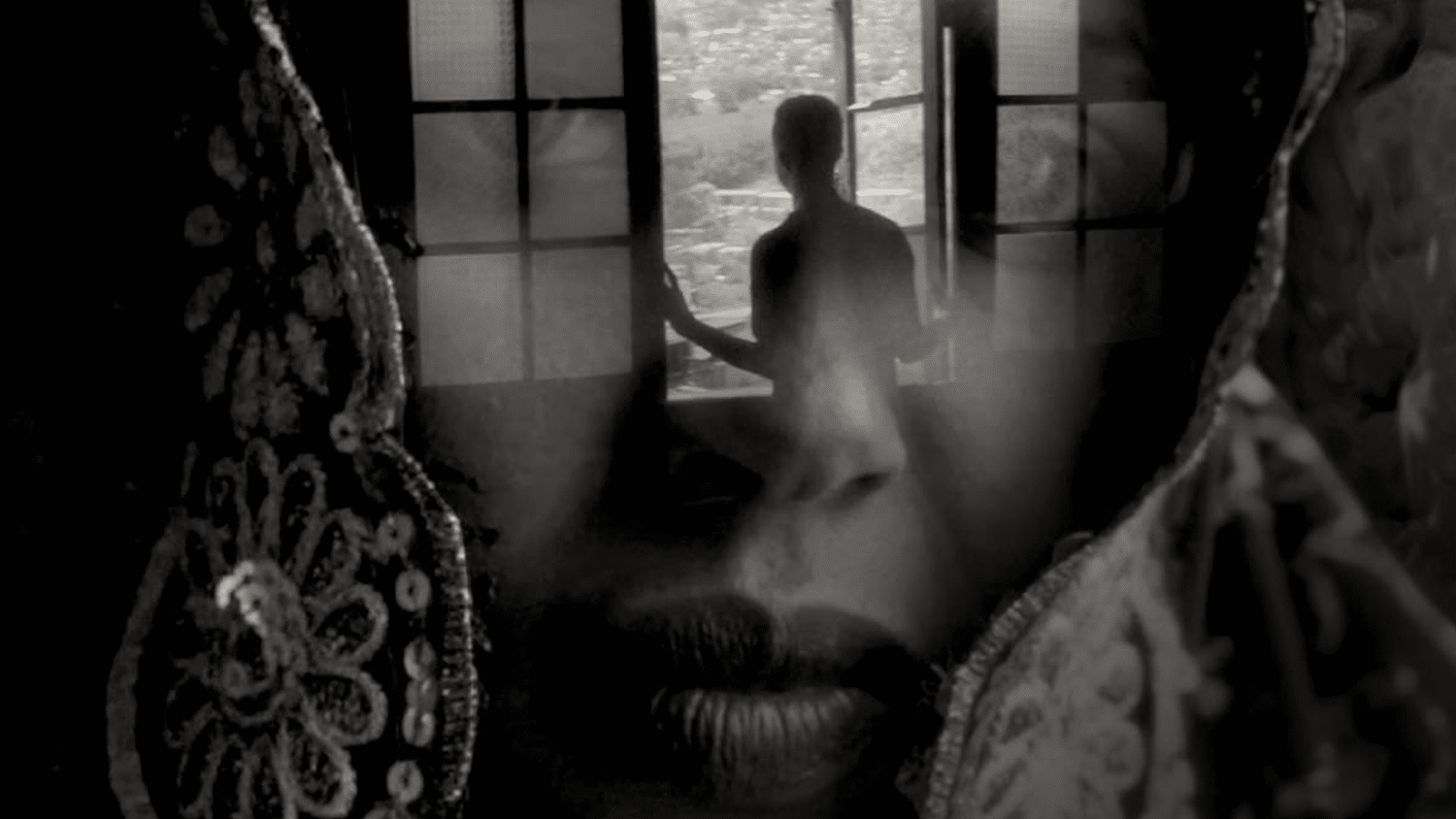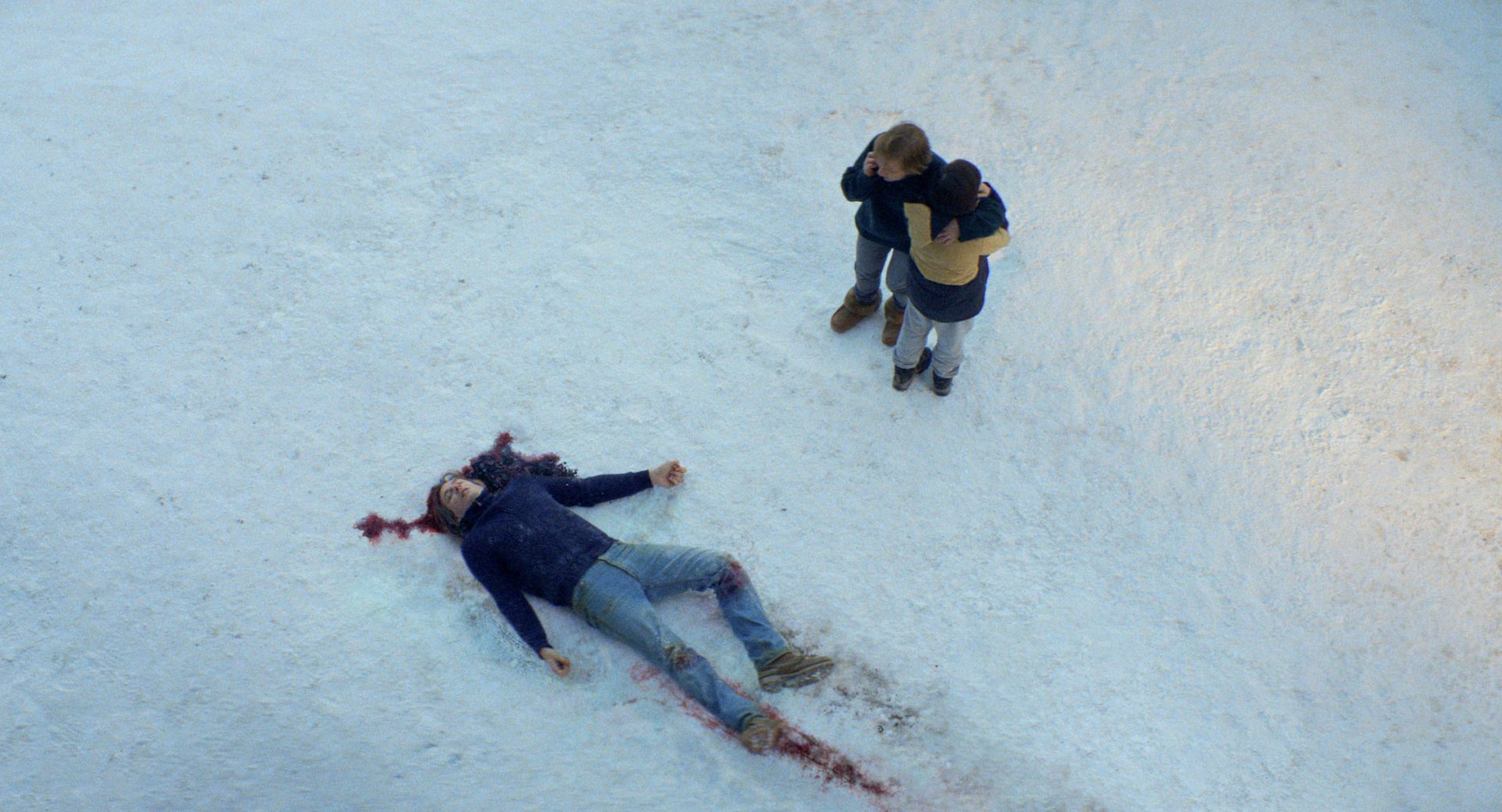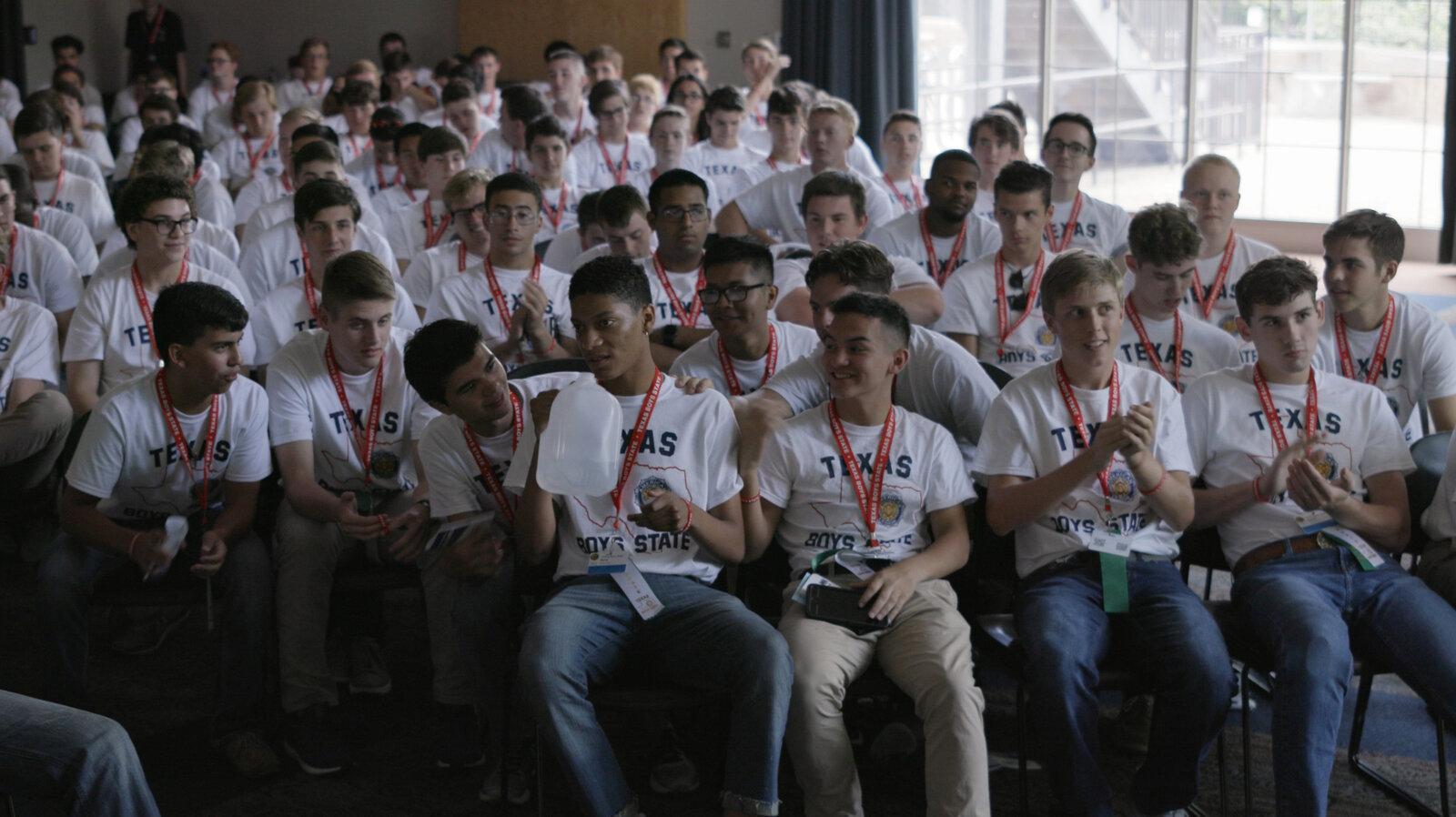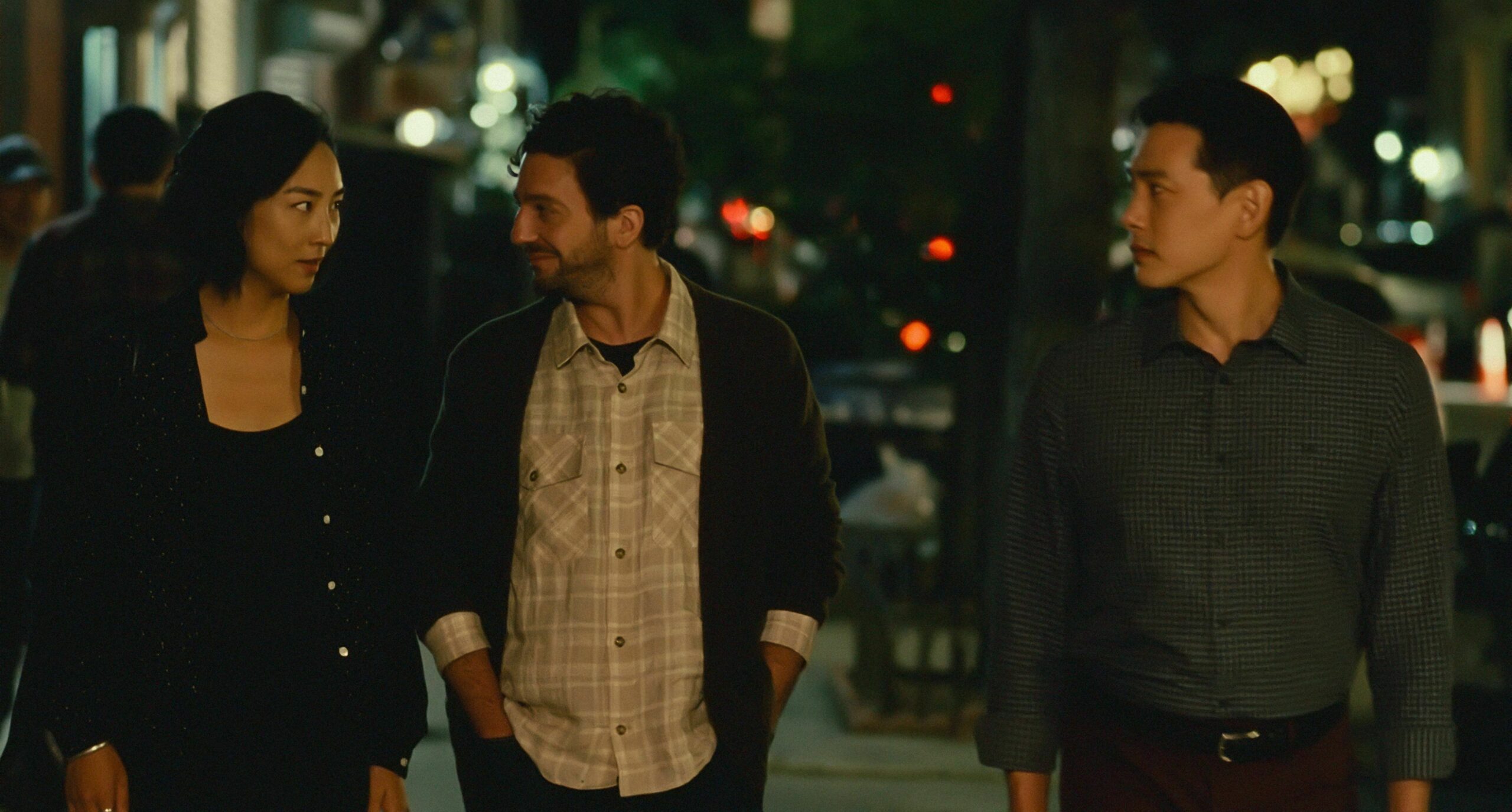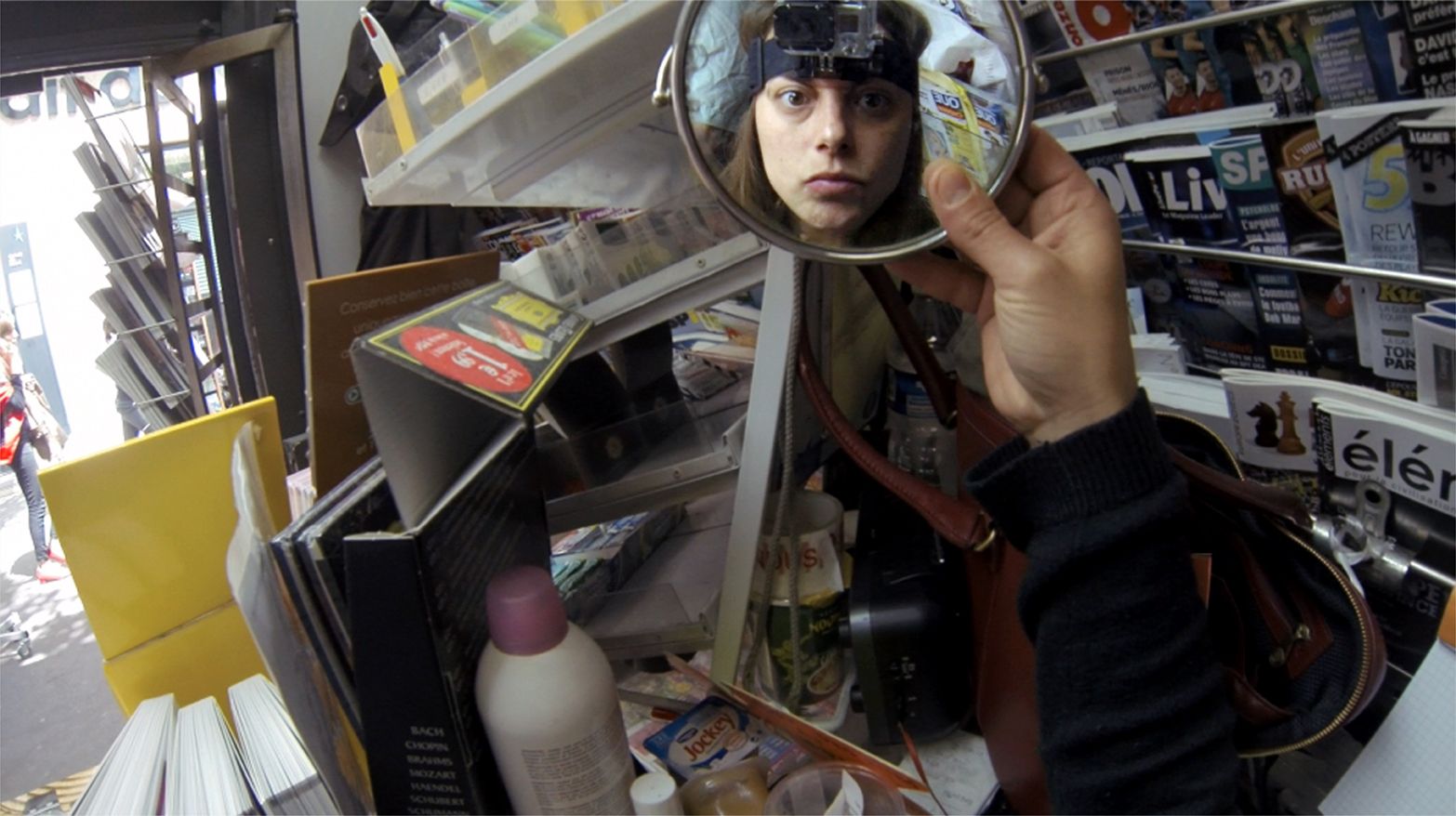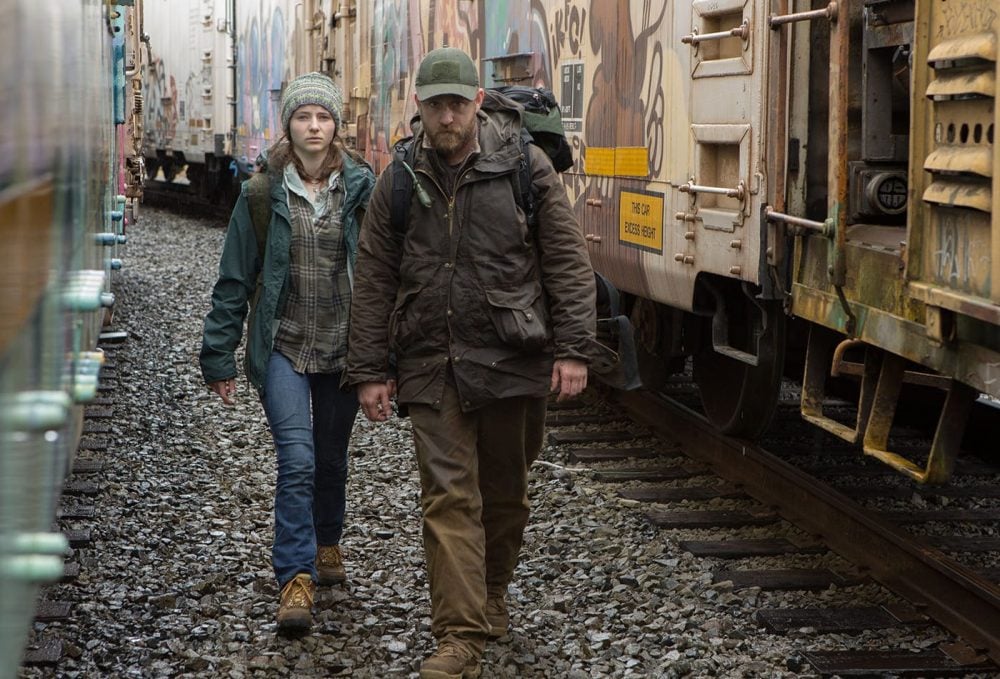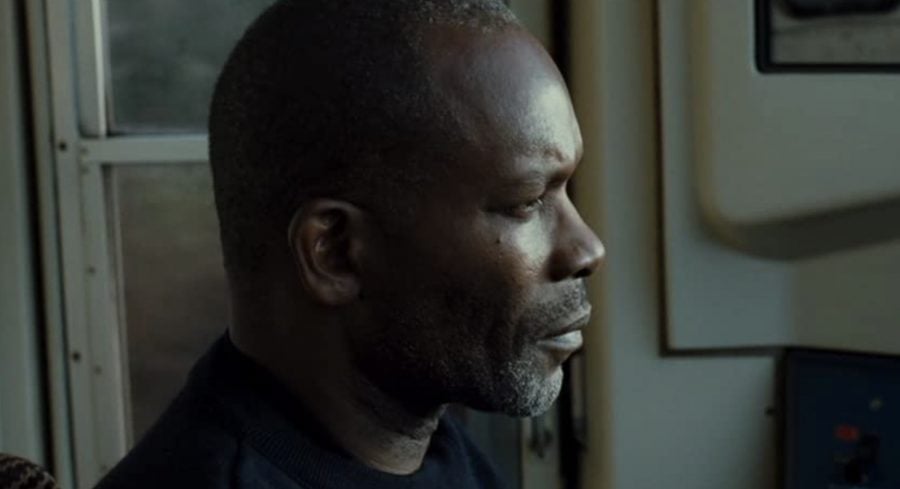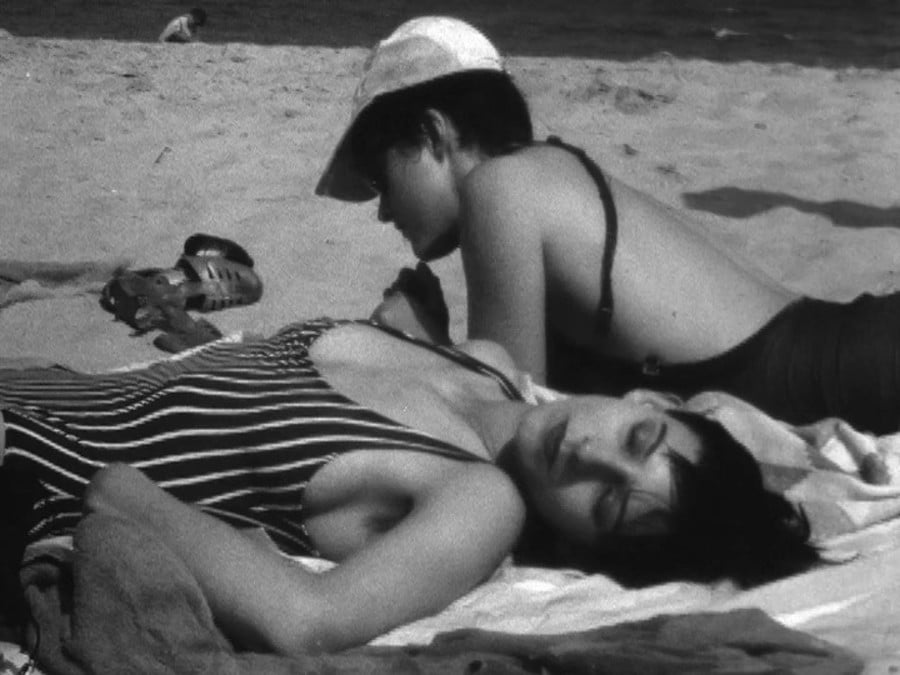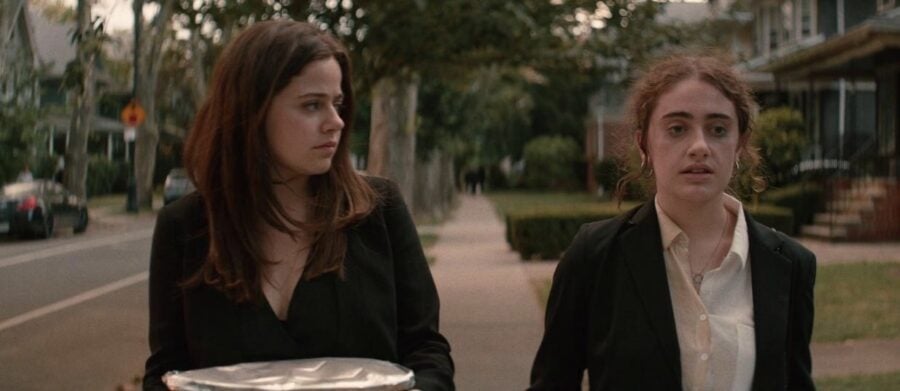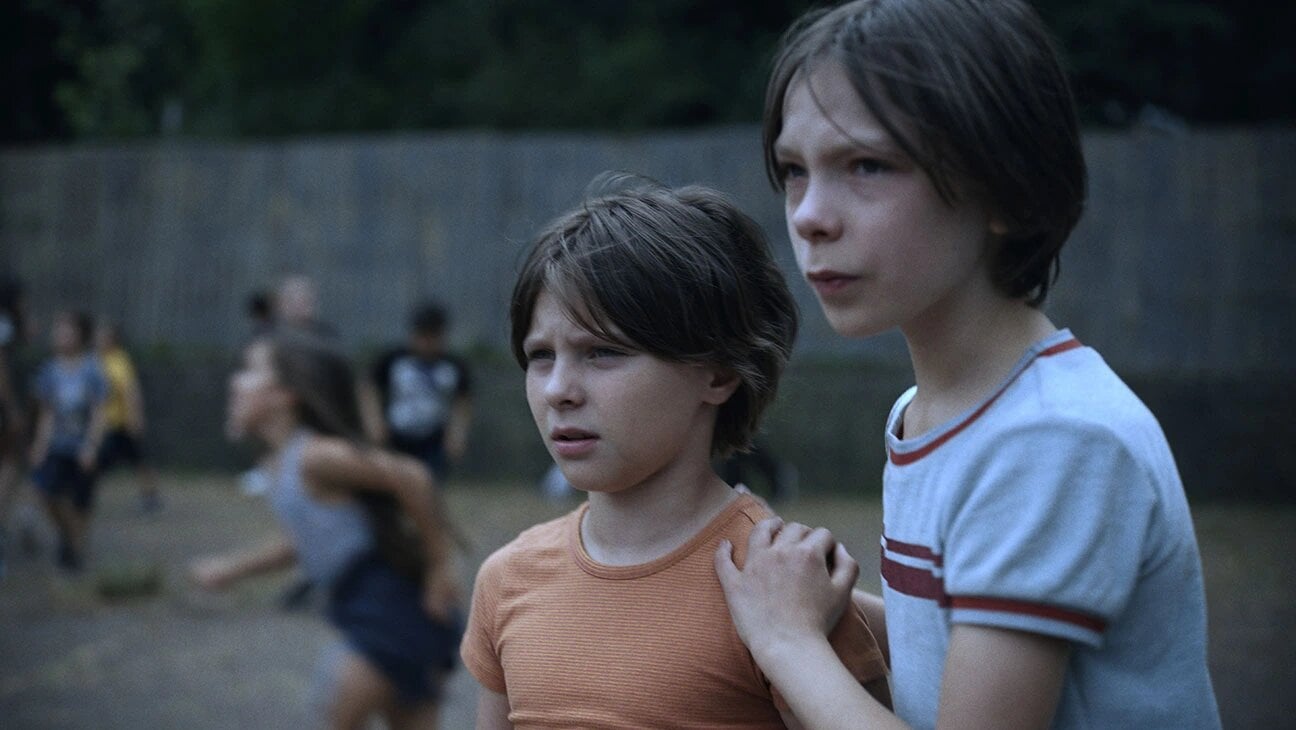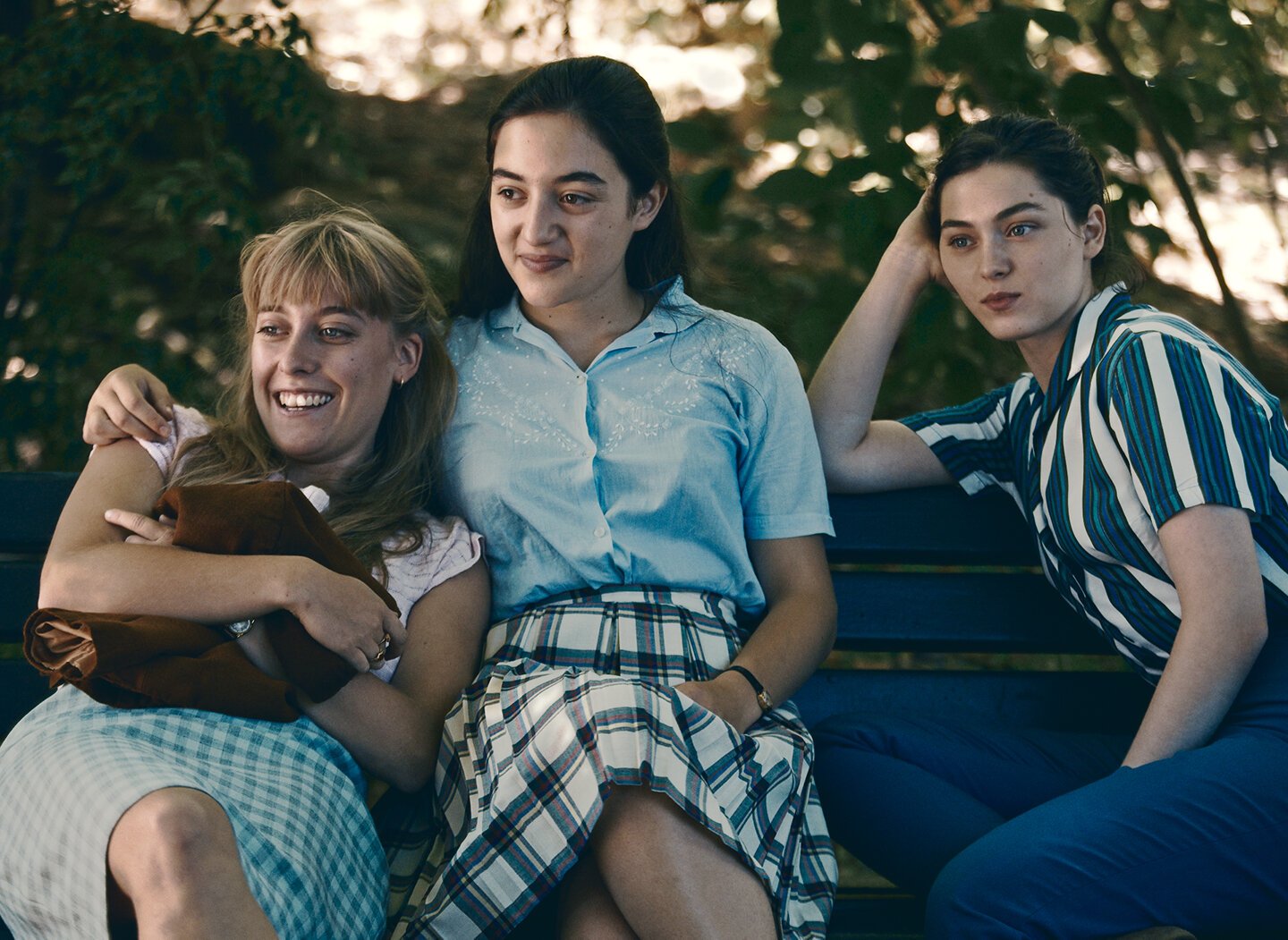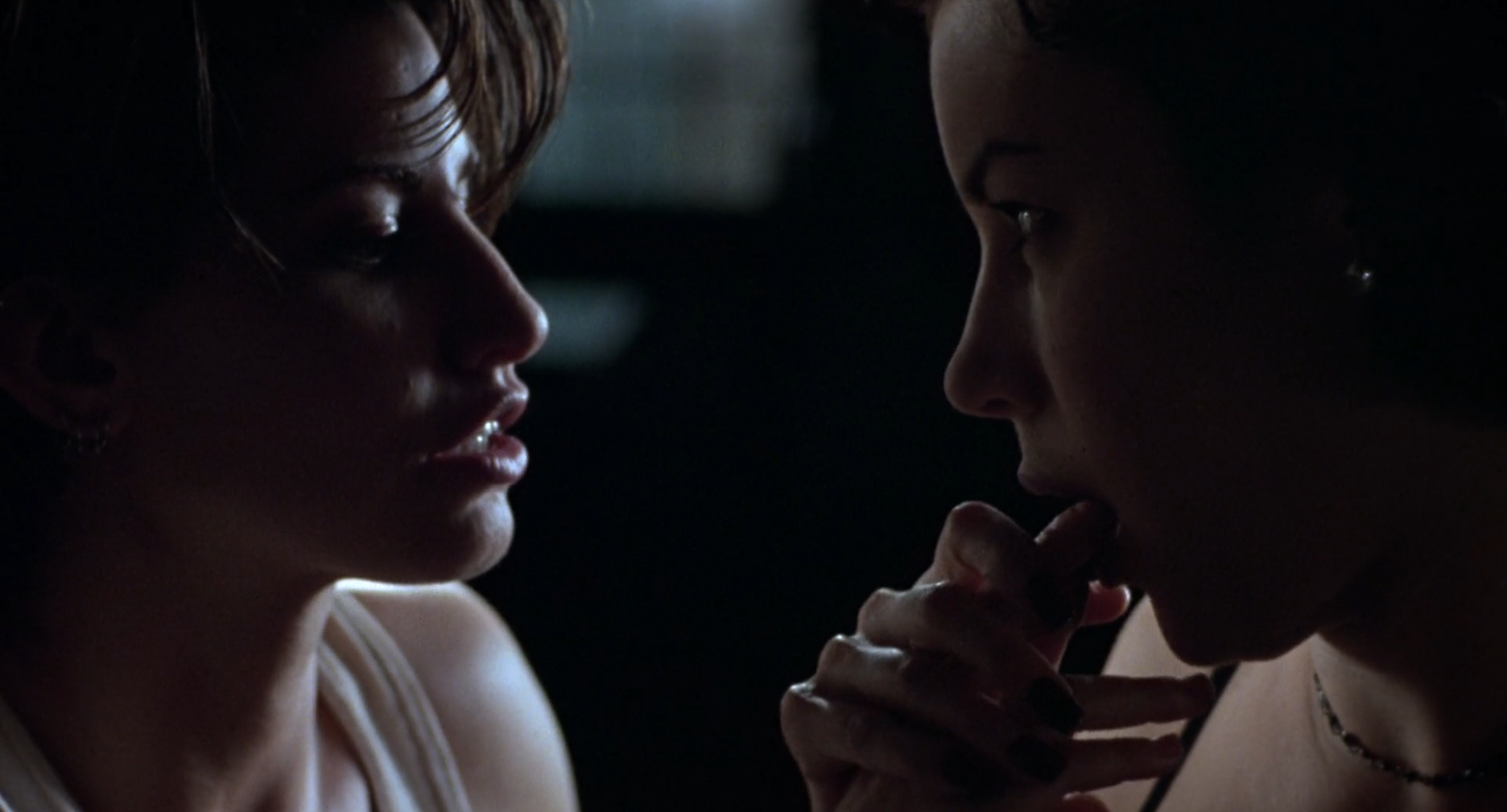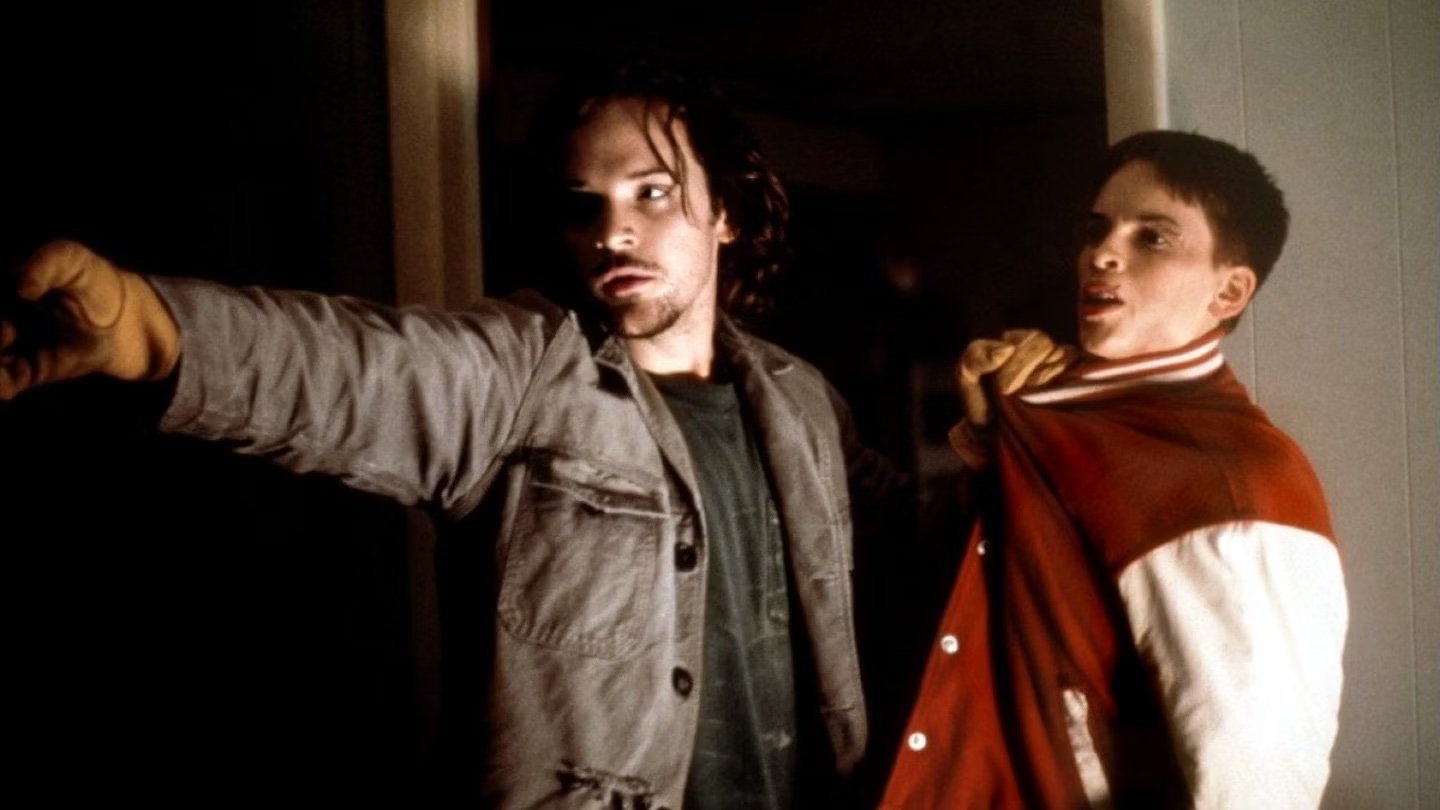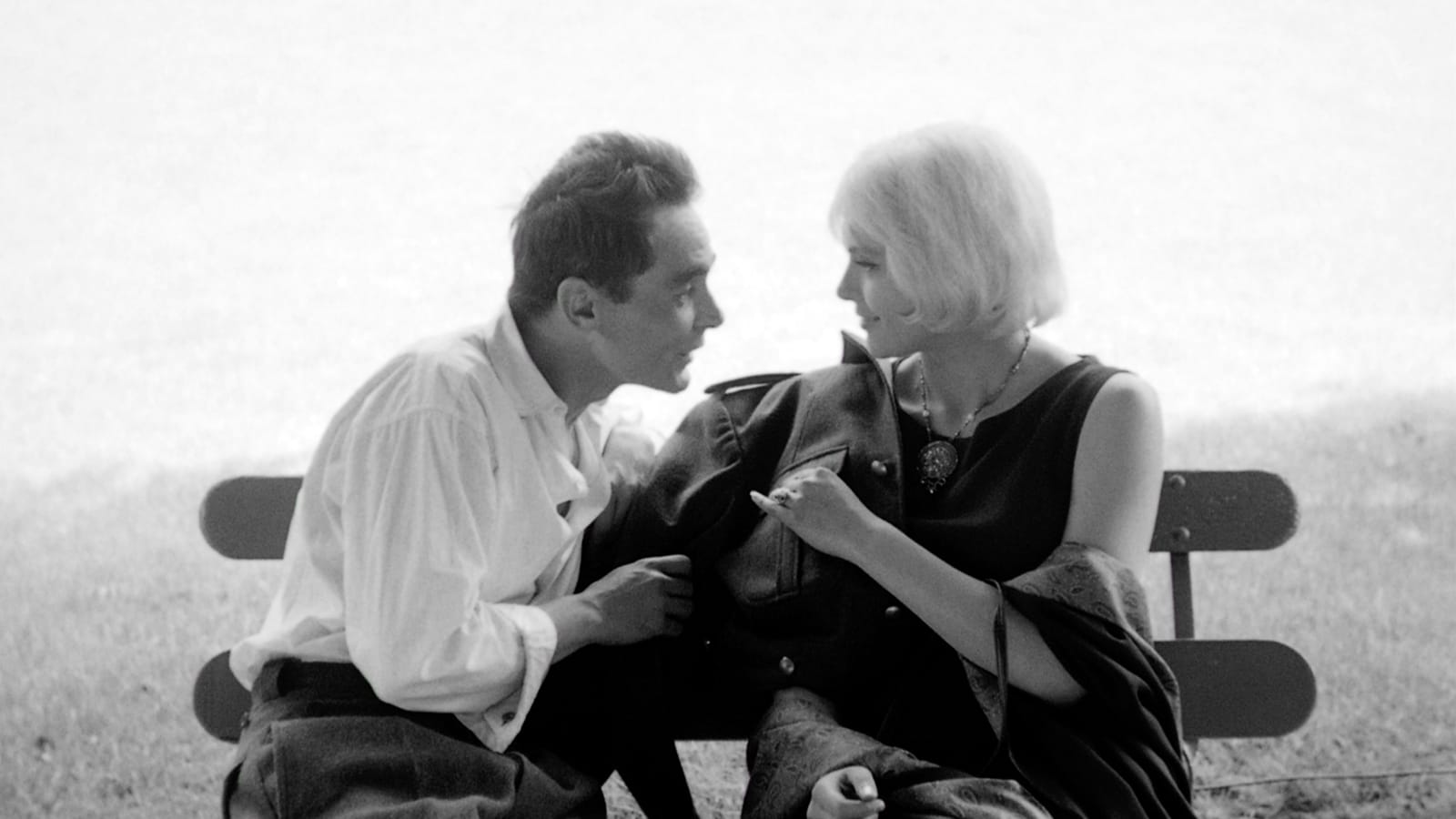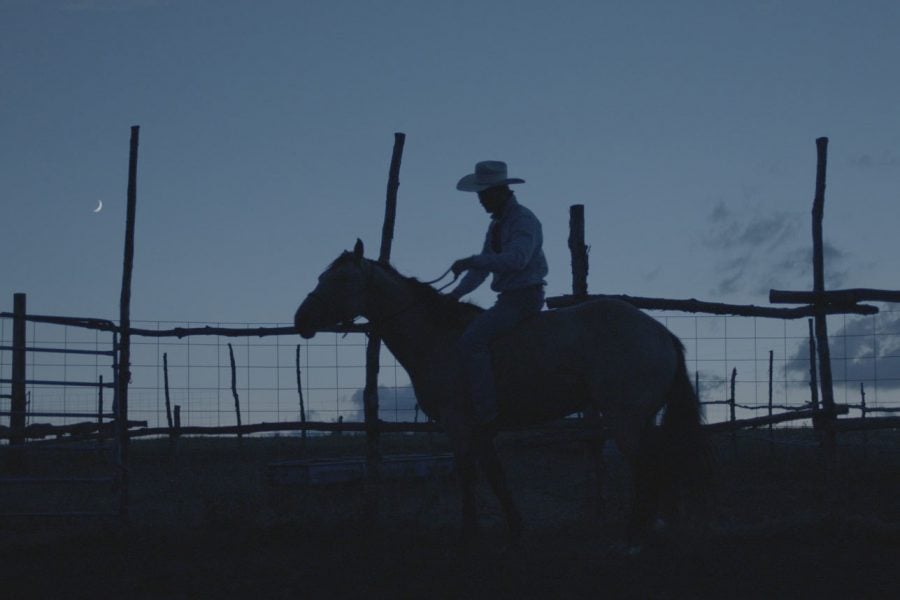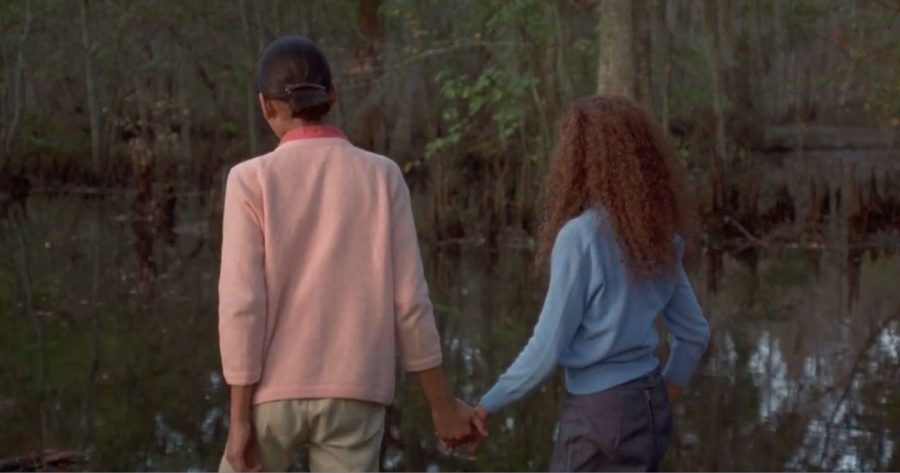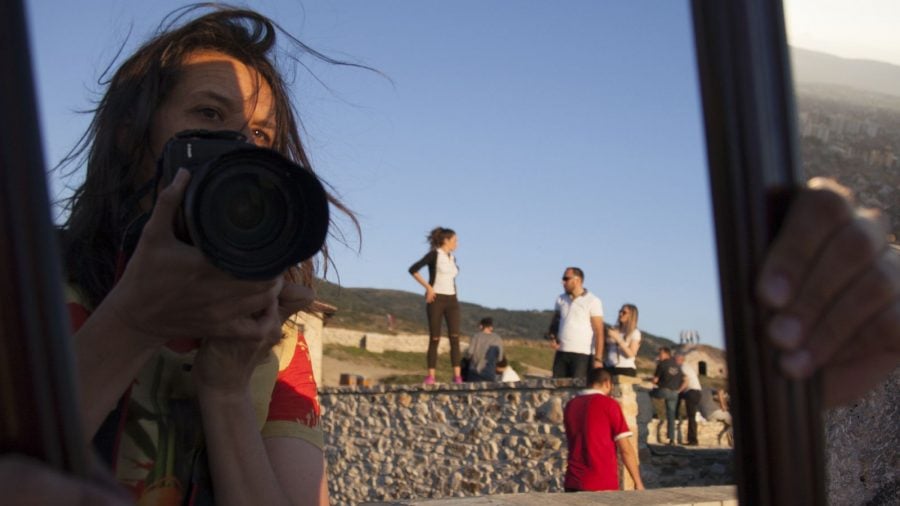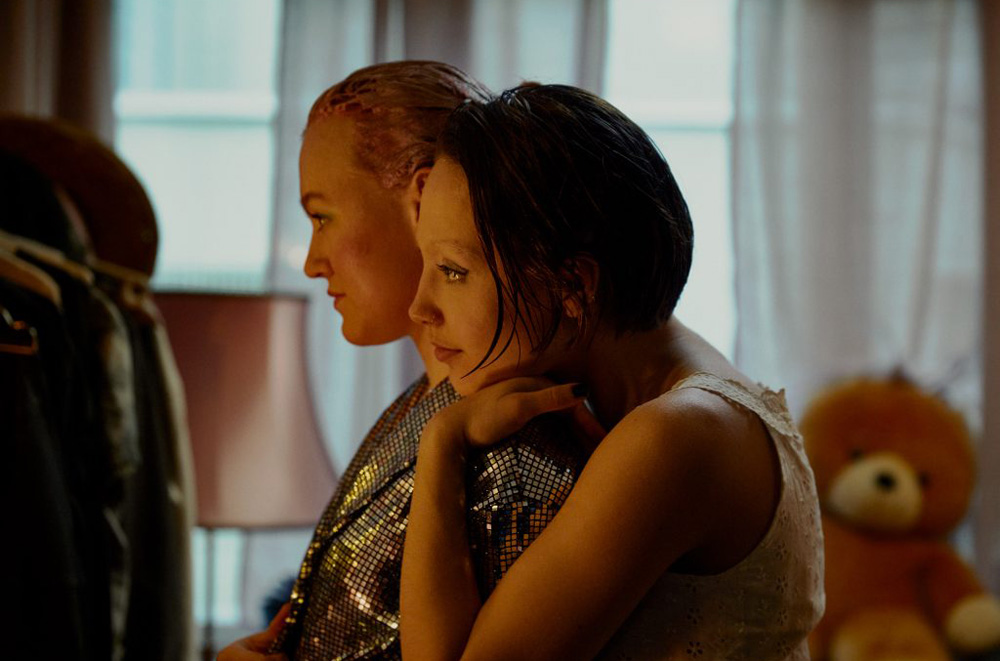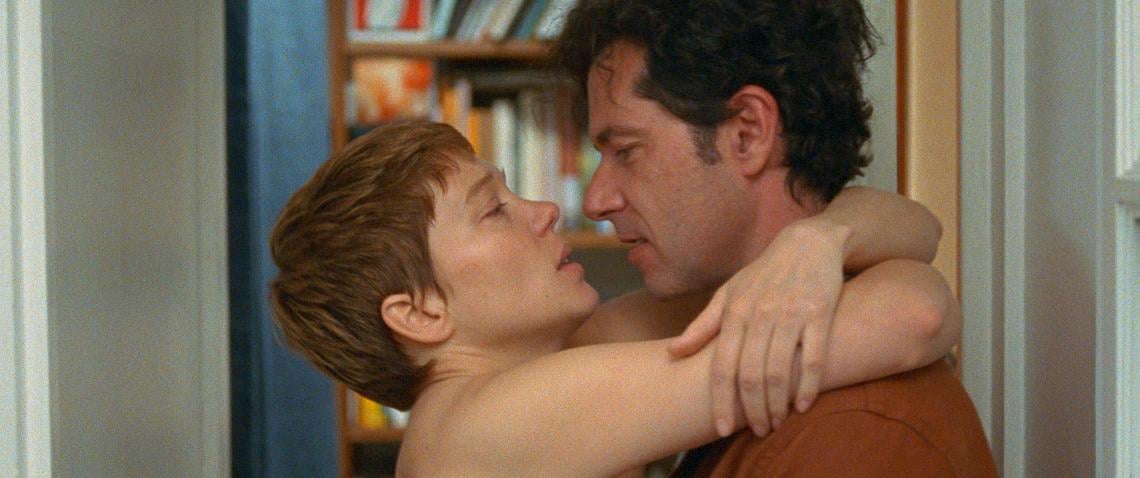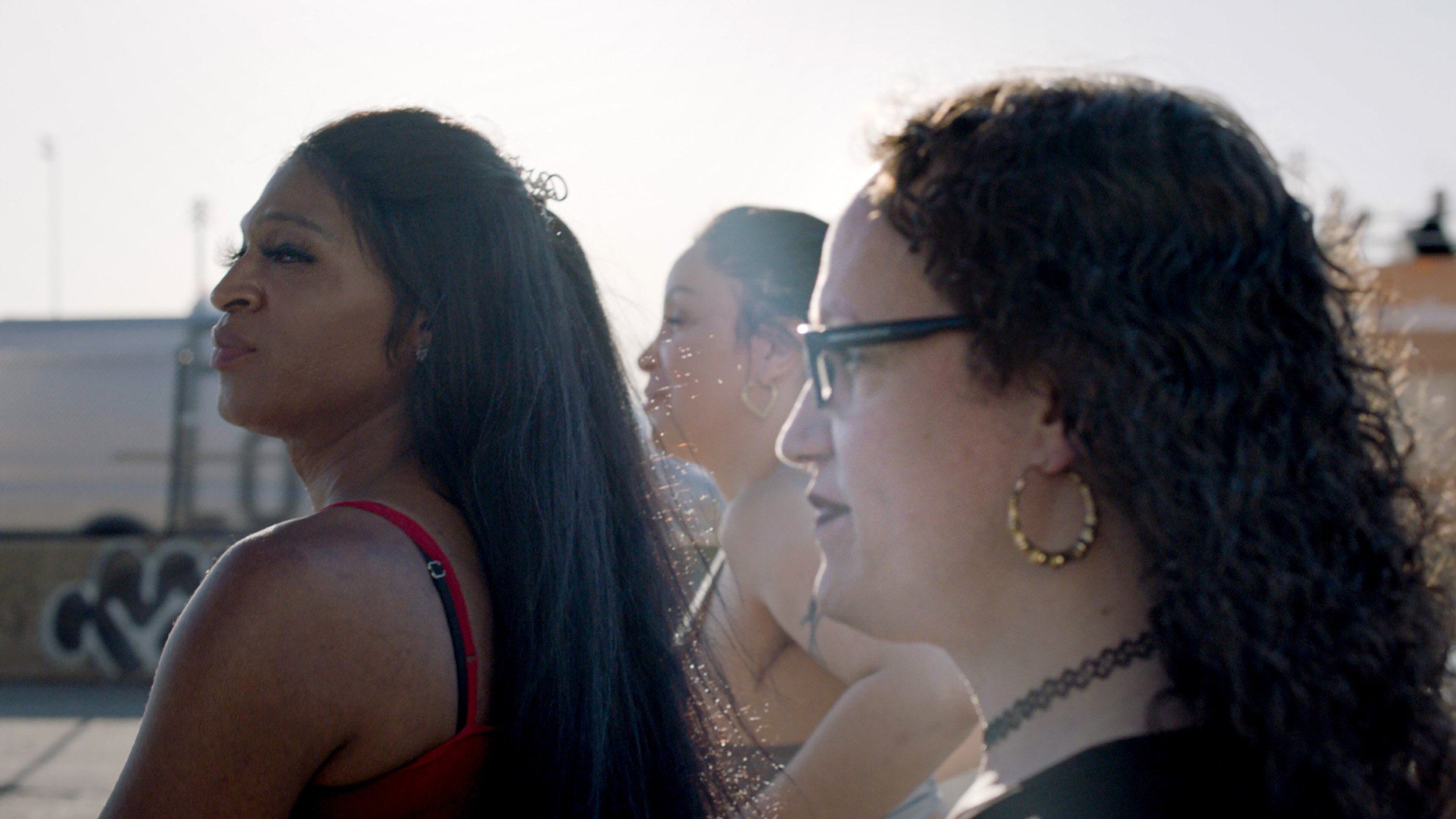The 50 Best Movies Directed By Women
Over the past couple of years, the number of women working in film has skyrocketed to an all-time high. And yet, female directors remain consistently underrepresented at award shows and “best-of lists”. Just consider that in the Oscar’s ninety-two years of existence, only one woman – Kathryn Biglow, the director of The Hurt Locker – has ever won Best Director, and that wasn’t until 2010. Facts like these reflect a gender divide that exists way beyond Hollywood, and the people who end up missing out are the cinema lovers who are hungry for fresh perspectives. So to balance it out, we’ve rounded up the best movies directed by women that are available to stream.
In Aftersun, Sophie recalls a holiday she took as an eleven-year-old in the ‘90s with her father. Video recordings help jog her memory, but she’s looking for more than just a blast from the past. Rather, she seems to be seeking answers to fill in the gaps between who she knew as her father and who he really was: an immensely nice but deeply troubled man.
At first, Aftersun looks like a simple but beautiful story about father and daughter bonding over the course of a summer trip. But within minutes, it’s clear that there are layers to Aftersun, emotionally and editorially, that aren’t always explained but nonetheless enrich the movie with profound meaning. Stirring, complex, and surprisingly inventive, it’s not surprising that Aftersun is one of the most beloved films of the past year.
Genre
Drama
Director
Charlotte Wells, Female director
Language
English, Spanish, Turkish
Mood
Character-driven, Dark, Depressing, Dramatic, Emotional, Heart-warming, Lovely, Tear-jerker, Touching, Well-acted
It’s a testament to Agnès Varda’s remarkable ability to glean so much raw beauty and truth from the world that this autobiographical documentary is such a rewarding watch, even for people unfamiliar with her. The Beaches finds the pioneering director in reflective mode as she looks back at her work and life, but her artistic impulses are by no means stagnant: she approaches the past with the same — if not more of the — generous candor and youthful spirit that colored her career.
It’s also a testament to Varda’s inimitable artistic touch that she turns a usually-bleak subject — mortality — into something this life-affirming. The Beaches was made when she was 81, aware of her own ticking clock and still nursing the decades-long loss of so many loved ones (chiefly, husband Jacques Demy). Just as her grief-stricken reflections don’t overwhelm the film with sadness, the whimsical impulses she indulges here — like constructing a beach on the street in front of her office — don’t blunt the sharpness of her candor. The overall effect is bittersweet and profoundly inspiring: as with the mirrors she places in front of the tide in the film’s first scene, she’s showing us it’s possible to face the inescapable with a twinkle in your eye.
Genre
Documentary, Drama
Director
Agnès Varda, Female director
Language
French
Mood
Emotional, Feel-Good, Heart-warming, Inspiring, Lovely, Original, Quirky, Thought-provoking, Touching, Uplifting, Warm
Danish films somehow have a unique approach to emotions that are rarely matched and this Susanne Bier-directed drama is no exception. Its protagonist is Jacob Peterson, a driven idealist played by Mads Mikkelsen, who runs a fledgling orphanage in India. Close to giving up, Peterson returns to Copenhagen to meet a billionaire, who is offering to fund his charity project. However, there is a dark secret at the heart of this relationship, throwing Peterson into disarray. This elegant and Academy-Award-nominated Danish film has it all: fantastic cast, great direction, and a few special ingredients that turn a good drama into a thrilling one!
Genre
Drama
Director
Female director, Susanne Bier
Language
Danish, English, Hindi, Swedish
Mood
Character-driven, Dramatic, Emotional, Raw
The first movie to be nominated for both the Documentary and Foreign-Language Oscar categories and the most awarded film of the 2019 Sundance Festival, Honeyland quietly accompanies the last wild beekeepers in Europe over three years. It portrays the lonely and primordial life of Muratova, which is centered around harvesting honey according to the rules of her ancient ancestors and caring for her ailing mother.
Originally planned as an environmental documentary, this film evolved into something completely different, as it often goes with immersive documentaries, when the Macedonian directors Tamara Kotevska and Ljubomir Stefanov met beekeeper Hatidže. The film takes another sudden turn when Muratova’s life is upended by a nomadic family settling next door, threatening her tradition, her way of life, and her natural environment.
This unbelievable cinematic journey is a feast for the eyes thanks to the amazing work done by cinematographer Samir Ljuma. However, despite the awe-inspiring imagery, Honeyland never imposes on its subject, creating an incredible intimacy with Hatidže’s life and her natural environment. Breathtaking!
Genre
Documentary
Director
Female director, Ljubomir Stefanov, Tamara Kotevska
Language
Bosnian, Croatian, Macedonian, Serbian, Serbo-Croatian, Turkish
Mood
Instructive
Though the drag scene is alive and well today, Paris is Burning is an important reminder that it didn’t always used to be that way. Over the course of seven years, Director Jennie Livingston leads us underneath the crime-ridden streets of 80s New York, where a glittery drag subculture is flourishing, despite all odds. Leading the community are the so-called mothers, the best performers and most fashionable of them all, tasked with inspiring and caring for newcomers. Nevermind that they’re shunned by society and suffocated (sometimes literally) by hateful homophobes and racists; when there is a ball, all that matters is that they strut, dance, and put on the best damn show of their lives. What they do is art, and Livingston makes sure to exalt the craft and pride that goes into it. At the same time, intimate interviews with iconic queens like Pepper LaBeija and Willi Ninja reveal the heartbreaking nature of the community. Most, if not all, have endured some form of abuse, and many risk their lives to earn a decent living. But again, Livingston refuses to reduce them to pure tragedy; she gets them to share their wonderfully big dreams, then gets us to hope along with them that they might just come true.
Genre
Documentary
Director
Female director, Jennie Livingston
Language
English
Mood
Discussion-sparking
On Body and Soul is the impeccably crafted winner of the 2017 Berlin Film Festival and an Academy Award nominee for Best Foreign Language Film. Is it possible that two people dream the same dream? And meet each other in that same dream? This unique drama directed by Hungarian filmmaker Ildikó Enyedi studies this possibility against the unlikely backdrop of a slaughterhouse. Middle-aged, inconspicuous manager Endre (Géza Morcsányi) can’t help but noticing a new girl at work, Maria (Alexandra Borbély), the abattoir’s new hygiene manager. They fall in love, but not, as you might suspect, during a fateful mandatory hygiene inspection, but in their dreams—in the shape of two deer in a mysterious, snow-covered forest. The Hungarian director had taken an 18-year break from making movies, which was probably the prerequisite for making something as striking and unconventional as On Body and Soul.
Genre
Drama, Fantasy, Romance
Director
Female director, Ildikó Enyedi
Language
Hungarian
Mood
Romantic, Thought-provoking, Thrilling, Warm, Weird
Many things clash in this beautifully layered, semi-autobiographical film of American director Lulu Wang: cultures, morals, and emotions. The result is a type of comedy that is complex and bittersweet—and based on a true lie: this is the story of a Chinese grandma whose family won’t tell her that she is fatally ill. Instead, they organize a fake wedding in China, where everyone gets together to bid a farewell to the unwitting matriarch (played by Zhao Shuzhen). The fake wedding is, in fact, a premature funeral for a person unaware that she is going to die. Played by rapper and comedian Awkwafina, Billi, a New-York-based Chinese-American with a complicated relationship to China, embodies the cultural and moral question at the heart of this story: is it right or wrong not tell grandma? It is thanks to Wang’s deft writing and Awkwafina’s outstanding performance that The Farewell homes in on answers without ever being melodramatic. Warm, honest, and beautiful.
Genre
Comedy, Drama
Director
Female director, Lulu Wang
Language
English, Japanese, Mandarin
Mood
Depressing, Emotional, Inspiring
Fire of Love is a documentary that follows Maurice and Katia Krafft, a scientist couple who’ve dedicated their entire professional lives to studying (and marveling at) volcanoes. The two met at university and have been inseparable ever since, chasing explosions around the world until their death at the Mount Unzen eruption in 1991.
The fiery passion the title refers to is as much about Maurice and Katia as it is about their dedication to volcanoes. Like any love story, it tracks how they were first wonderstruck by the formation and how that awe shaped their lives and led them to each other, as well as how they came to discover hard truths about it and dealt with the heartbreak that soon followed.
Combining the breathtaking footage the couple left behind with lovely writing and artful animation, director Sara Dosa creates a moving documentary about passion, adventure, and the world itself.
Genre
Documentary, Drama
Director
Female director, Sara Dosa
Language
English, French, Portuguese, Spanish
Mood
Discussion-sparking, Inspiring, Lovely, Smart, Thought-provoking, True-story-based
You know you’re in for a treat when you see Julia Louis-Dreyfus and James Gandolfini heading the cast of a sweet and slightly goofy comedy. Steadily going beyond his persona in The Sopranos, you see James Gandolfini playing a role that his fans have probably always imagined him playing: a nice, funny guy with an endearing personality. Directed by Nicole Holofcener, Enough Said almost has a sit-com feel to it: a divorced single parent and masseuse, Eva (Louis-Dreyfus), is looked up by a guy, she briefly met at a party, Albert (Gandolfini). Upon finding out they have much in common, the two start dating. At the same time, she meets Marianne (Catherine Keener), who she becomes friends with and who cannot stop talking ill of her apparently awful ex-husband. You guessed it: it’s her new, promising date, Albert. Things get muddy and very funny as she starts to doubt, whether she has made a big mistake. Hilarious, romantic, and smart, it’s very much like we expected: a real treat.
Genre
Comedy, Drama, Romance
Director
Female director, Nicole Holofcener
Language
English
Mood
Easy, Emotional, Feel-Good, Grown-up Comedy, Heart-warming, Raw, Romantic, Uplifting, Warm
Joshua Oppenheimer’s daring feat is a documentary unlike anything ever done. Despite it being one of the most difficult things to watch for any human being (or because of it), The Act of Killing received praise across the board, including an Academy Award nomination. Without Oppenheimer’s efforts, you might have never heard of the unspeakable events that happened when, in 1965-66, Suharto overthrew the then-president of Indonesia and a gangster-led death squad killed almost a million people. Did they pay for their crimes? Quite the contrary: said gangsters went on becoming political mainstays in modern-day Indonesia, are still now heralded as heroes, and admit to all these crimes with a smile and not a hint of regret. The gruesome twist of this documentary is that Oppenheimer asks them to re-enact the killings in surreal, sadistic snuff movies inspired by the murderer’s favorite action movies. You are forced to stand idly by as they re-create brutal mass murder and joke about raping a 14-year-old. However, somewhere amidst this terrifying farce, the killers, too, have fleeting moments of realization that what they’re doing is wrong. If you make it through this in one piece, try watching its more victim-focused follow-up The Look of Silence. Bone-chilling but very powerful stuff.
Genre
Documentary
Director
Christine Cynn, Female director, Joshua Oppenheimer
Language
English, Indonesian
Mood
Dark, Depressing, Discussion-sparking, Dramatic, Instructive, Intense, Raw, True-crime
Orcas killing people? Saving whales? There was indeed a time when these issues were frontpage news and that might be the reason why this sounds like a 90s cliché to you. You might agree that this issue should be staunchly dealt with once you’ve watched Gabriela Cowperthwaite’s 2013 documentary. Orcas still being held captive by marine parks like SeaWorld to perform stunts and to parade around swimming pools to entertain ticket-buying families. Blackfish is the story of one of them in particular: a bull Orca named Tilikum, who has killed several people as a result of their immoral imprisonment. Similar incidents tend to be covered up by the parks’ operators and management. They are, however, attributable to the fact that the animals are quiet simply driven mad by the unnatural conditions they are subjected to. They are not born as killers, they are turned into them. First-hand accounts by former whale trainers and experts deliver fascinating truths about Tilikum and the species as whole, elaborating on their remarkable intelligence and social behaviors. For those unaware of this, this passionate documentary makes for a chilling watch.
Genre
Documentary, Drama
Director
Female director, Gabriela Cowperthwaite
Language
English, Spanish
Mood
Challenging, Thought-provoking
From Selma director Ava DuVernay, 13th addresses the second clause of the 13th amendment: “Neither slavery nor involuntary servitude, except as a punishment for crime whereof the party shall have been duly convicted, shall exist within the United States.” A clause that was immediately exploited and for which the consequences and interpretations explain a significant part of the current American societal landscape. What also unfolds is a highly instructive and thought-provoking film that deals with the idea of progress, and justly pays tribute to the horrifying number of lives mass criminalization ruined.
Genre
Documentary
Director
Ava DuVernay, Female director
Language
English
Mood
Instructive, Intense, Mind-blowing, Sunday, Thought-provoking
Winner of a Camera d’Or, the debutant’s prize at the Cannes Film Festival, Director Houda Benyamina’s first feature film is fast-paced and full of energy. Deep in the impoverished suburbs of Paris, the infamous banlieues, it tells the story of Dounia (played by Oulaya Amamra), a mouthy teenager who is not content with what society is prepared to hand out to her. She’s angry; she wants more. And so, together with her best friend Maimouna (Déborah Lukumuena), she decides to finally make some cash as a runner for a drug dealer. While there’s obviously some feminism in there somewhere, that’s not at the heart of what this film is about. It’s about the economic reality in a world of poverty and about two friends and their desire for freedom—no matter what the cost. An exhilarating and thought-provoking debut helped along by Amamra’s amazing acting.
Genre
Drama
Director
Female director, Houda Benyamina, Uda Benyamina
Language
French
Mood
Character-driven
Capernaum is both the highest-grossing Middle Eastern movie of all time and the highest-grossing movie in Arabic of all time. Lebanese director Nadine Labaki was the first female Arab director to be nominated for Best Foreign Language Film at the Academy Awards. Capernaum is thus duly considered a masterpiece, as it follows an angry 12-year-old kid in Lebanon, who leaves his negligent parents and tries to make it in the streets on his own. It’s a tale of grinding poverty as experienced by a boy with a good heart, who meets many kindly people on the way as well as sinister characters. An acting tour de force by the fierce child actors, especially Zain Al Rafeea, Capernaum is harrowing, emotional, and, maybe, a touch melodramatic. However, it doesn’t compromise when asking some hard questions about parental failure and love, putting them into the context of the bigger regional picture. It can be a tough watch, but the furious acting and pitch-black humor, ultimately, make this an uplifting movie, likely to stir up some debate.
Genre
Drama
Director
Female director, Nadine Labaki
Language
Amharic, Arabic
Mood
Depressing, Discussion-sparking, Dramatic, Smart
Do you keep re-watching Superbad when you’re hungover? Next time you are, try the film that has been praised as ‘the female Superbad”: the amazing Booksmart. Yes, it’s coming-of-age comedy, but, like Superbad, it tried something a little different. Like its two main characters, one could say it’s a bit smarter than Greg Mottola’s seminal bromedy. Molly (Beanie Feldstein, incidentally, Jonah Hill’s younger sister) and Amy (Kaitlyn Dever) are best friends, class presidents, and academic overachievers. Nice girls, too. With excellent grades in their pockets, they head off to college only to find that the same in-crowd from high school that was doing nothing but partying, now goes to the same college as them. Why, oh why, did they choose academic success over partying, when, clearly, they could have had both? On their last day in high school, now here’s a trope, they decide to make up for all the years of lost partying on one night. This sets off a raucous, raunchy, and wildly entertaining ride. And with a feminist twist!
Genre
Comedy
Director
Female director, Olivia Wilde
Language
English, Japanese, Mandarin, Spanish
Mood
Easy, Feel-Good, Funny
In this powerful documentary, Brazilian filmmaker Petra Costa intertwines her own family history with the democratic journey of her home country. As she says herself, Costa and her country’s democracy are of the same age. This is not the only reason why she was uniquely positioned to make a film like this: her parents were left-wing activists in the 1970s, who went to jail for their beliefs, while her grandparents were part of the ruling class have made Brazil’s strong-man politics and right-wing backlash possible. Her mother was held at the same prison that ex-president Dilma Rousseff (2011-2016) was sent to. Costa tells the story of Rousseff’s demise as well as that of Luiz Inácio da Silva (2003-2011) aka Lula, whose future remains up in the air. The Edge of Democracy is thus a gripping and urgent warning that democracy in the world’s sixth most populous country is under attack. In content and form, Costa is obviously opinionated, but she makes a strong point.
Genre
Documentary
Director
Female director, Petra Costa
Language
English, Portuguese
Mood
Emotional, Instructive, Sunday, Thought-provoking
While quite testing for viewers, this is one of the craziest, most high-energy movies you’ll ever watch. In this incredible German drama, child actor Helena Zengel plays Bernadette aka Benni, a traumatized 9-year-old child who tends to lash out and has been repeatedly suspended from every school she went to. Benni is a so-called “Systemsprenger” (which is the original German title). A system crasher is a child so uncontrollable and aggressive that, over time, she falls through the grid of special schools, foster care, and social work facilities. Despite the best efforts of her designated social worker, Frau Bafané, played by Gabriela Maria Schmeide, she is turned down by everyone, testing the patience of her surroundings, wherever she goes. A trip with Micha (Albrecht Schuch), a tough boxer and anger-management trainer, turns out to be the last resort. Directed by Nora Fingscheidt, System Crasher is intense, punky, and wild with an almost eerie sense of authenticity. Its devastating effect is helped along by its unique, hyperactive camerawork. Much like the social workers themselves, you might have a hard time keeping professional distance to all this. This intense drama will stay with you for a long time.
Genre
Drama
Director
Female director, Nora Fingscheidt
Language
English, German
Mood
Intense, Thought-provoking
Nothing about Saint Omer is easy. A female Senegalese migrant (Guslagie Malanga) is put to trial for committing infanticide, but throughout the film, it becomes clear how much of a victim she is too, of an uncaring and deeply prejudiced society. “What drove her to madness?” Her attorney asks at one point. We’re not sure. We’re not necessarily asked to side with her, nor answer the many hard-hitting questions brought up in the film, but we sit with the uneasiness of it all and, in that silence, confront our ideas about motherhood, womanhood, personhood.
This confusion is what makes the film so compelling. Despite the court’s best efforts, Laurence isn’t meant to be understood. She’s meant to be an example of the ever-ambiguous, forever-complicated, always-hurt person. It’s human nature after all to be this complex and messed up. The film shows us that the best that we can do in situations like this is to listen, understand, and as our protagonist Rama (Kayije Kagame) does, make peace with the noise.
Genre
Crime, Drama
Director
Alice Diop, Female director
Language
French, Portuguese
Mood
Challenging, Emotional, Intense, Smart, Thought-provoking, True-story-based, Well-acted
In All the Beauty and the Bloodshed, documentarist Laura Poitras (Citizenfour, My Country, My Country) lends her empathetic and incisive lens to a subject so passionate and imaginative, she ends up collaborating with Poitras to co-create the documentary about her life. The subject is Nan Goldin, one of the most influential photographers of the late 20th century.
The documentary captures Goldin’s work as a queer artist and anti-opioids activist, intertwining both aspects to tell a nuanced and incredibly important story about freedom, identity, and self-expression. This incredibly complex, encompassing, and vibrant feature won the top award at the Venice Film Festival, besting 19 other films from around the world.
Genre
Documentary, Drama
Director
Female director, Laura Poitras
Language
English
Mood
Gripping, Thought-provoking
Summer 1993 charts a formative summer in the life of young Frida (Laia Artigas), a brooding six-year-old who, having just been orphaned by AIDS, is sent from her home in Barcelona to live in the countryside with her uncle (David Verdaguer), his wife (Bruna Cusí), and their little girl (Paula Robles). Catalan director Carla Simón drew on her own childhood experiences for the film, making Summer 1993 feel intimately told. It’s shot from the perspective of its young protagonist and is guided by the unpredictable rhythms of memory: we experience Frida’s new life the way she might remember it when she’s older, via snapshots of moments that stand out to a child, like the day she spent amongst the chickens in a neighbor’s farm or the moment another kid asks her why she isn’t more visibly upset about her mother’s recent death.
That emotional enigmaticness is what makes Artigas’s naturalistic performance so absorbing: she never plays Frida in a predictable dramatic register, so much so that it’s easy to forget we’re not watching a documentary. The unexpected little ways her grief manifests itself — along with Simón’s assured, impressionistic directing — make this a profoundly heart-rending watch throughout, and especially so in its gut-punch of a final scene.
Genre
Drama
Director
Carla Simón, Female director
Language
Catalan
Mood
Emotional, Raw, Touching
It’s hard to overstate just how lovely — and quietly radical — this largely improvised Canadian docudrama is. The scenario (seven elderly women and their tour bus driver are stranded in the Canadian wilderness for a few days) is contrived, but the rich, lively conversations that feature are all drawn from the women’s real lives. As they hunker down and get on with the business of surviving with meager food — something they manage to do largely thanks to the bushcraft skills of Mohawk elder Alice — the strangers reflect on their long lives and open up to each other about their lingering fears and still-burning hopes.
They’re a diverse bunch — featuring Cockney transplants, lesbian pioneers, and nuns — and the film’s brief cuts to real photos from the women’s earlier years both underscore the rawness of what they’re saying and serve as testaments to the rich fullness of their lives. The Company of Strangers grants these women the kind of serious consideration and space that they’re denied in so many public spaces, but it never feels like a strained exercise in redressing that imbalance. Instead, this is simply a gentle, gorgeous, and profoundly moving portrait of women who aren’t done living yet.
Genre
Adventure, Drama
Director
Cynthia Scott, Female director
Language
English
Mood
Emotional, Feel-Good, Funny, Heart-warming, Inspiring, Lighthearted, Lovely, Original, Sunday, Sweet, Thought-provoking, Touching, True-story-based, Uplifting, Warm
Sit back, relax, and wait for the feels. With amazing performances from an ensemble cast, including Julianne Moore, Mark Ruffalo, and Annette Bening, as well as excellent directing; The Kids Are Alright is a highly realistic yet entertaining take on families, growing up as children, and growing as parents. Moore and Bening play a gay LA couple, whose two kids meet their biological father, a goofy, laid-back sperm donor, portrayed perfectly by Ruffalo. Nominated for four Oscars and awarded with two Golden Globes, The Kids Are Alright is an arresting, authentic, and astute indie comedy-drama, and a pleasure to watch. Director Lisa Cholodenko and her talented cast have really created something special here!
Genre
Comedy, Drama
Director
Female director, Lisa Cholodenko
Language
English
Mood
Emotional, Funny, Grown-up Comedy, Warm
Persepolis is the true story of Marjane Satrapi, the writer and illustrator whose graphic novels of the same name the film is adapted from. It details in vivid animation the trials of growing up in war-torn Iran, but also, crucially, the joys of being raised by a loving family and the significance of forming one’s own ideals and identity. In between revolving dictatorships and tightening restrictions, Marjane comes into her own and discovers what it means to live a meaningful life.
It’s a testament to Satrapi’s many talents that Persepolis never feels too flat or cynical given its 2D style and bleak backdrop. The drawings impressively morph with Marjane’s every thought, as if the ink itself were alive, and her wit persistently comes through in sharp observations and dialogues. Equally impressive is the film’s commitment to portraying war and conflict in a nuanced manner. In an autobiographical tale that is about Marjane’s coming of age as much as it is about her country’s survival, it’s never been more true that the personal is political.
Genre
Animation, Drama, History, War
Director
Female director, Marjane Satrapi, Vincent Paronnaud
Language
English, French, German, Persian
Mood
Discussion-sparking, True-story-based
Journalist LLoyd Vogel (Matthey Rhys) scoffs at the prospect of a profile commission, or a “puff piece”, as he calls it. His self-respect and professional ruthlessness has driven people away and this assignment may well be a test from his editor. But it is serendipity that brings Lloyd to American TV host Mister Roger (Tom Hanks) and his child-oriented show, at a time when he, a new father, is confronted with his own paternal trauma. No heavy psychological lifting here, but A Beautiful Day in the Neighborhood might be one of the most profound films about father-son relationships ever made. Notably, the film is directed by a woman, Marielle Heller (The Diary of a Teenage Girl). In her film as in his show, Mister Roger doesn’t have to do much: he listens, he speaks, he suggests, and while his kindness may seem frustrating at times, it is truly radical. Additionally, Lloyd’s character is based loosely on writer Tom Junod, whose encounter with Rogers ended up a profile in Esquire magazine.
Genre
Drama, Family, History
Director
Female director, Marielle Heller
Language
English
Mood
A-list actors, Character-driven, Emotional, Feel-Good, Heart-warming, Sweet, True-story-based, Uplifting, Well-acted
Like all great documentaries, Angry Inuk is about way more than its tagline. At first glance, it’s about how anti-sealing activism has been harming Inuit communities since the 1980s, to the point of instituting the highest rates of hunger and suicide anywhere in the “developed” world. But beyond, it’s about the complicity of the government of Canada. A crushed seal-based economy means that the Inuit have to agree to oil and uranium mining in the Arctic.
Angry Inuk is also about the corrupt behavior of animal rights organizations like Greenpeace: seals are actually not on the endangered animal list but NGOs focus on them because they make them money.
It’s an infuriating but incredibly important documentary. One that is not about how Canada has a bad history, but about how Canada is harming the Inuit right now.
Genre
Documentary
Director
Alethea Arnaquq-Baril, Female director
Language
English, Inuktitut
Mood
Discussion-sparking, Instructive, Mind-blowing, Sunday, Thought-provoking
Many films have tried to decipher the indecipherable bond between mothers and daughters. Lady Bird, Everything Everywhere All at Once, and Turning Red, to name a few, center on this particular relationship, which to outsiders may seem strange at best and dysfunctional at worst. How can mothers yell at their daughters one second and coddle them the next? How can daughters treat mothers like their best friend and enemy all at once?
One of the best films to explore this complexity is Petite Maman, a fantasy-like film that brings together mother and daughter in a unique situation, forcing them both to regard the other in otherwise impossible ways. It succeeds where others haven’t precisely because it accepts that this relationship is beyond dissecting, and the only way to honor it is in the poignant, poetic, and otherworldly way that it does. It’s a quiet film that manages to say a lot, not least of which is that it’s okay to feel and love and hurt as much as one does.
Genre
Drama, Family, Fantasy
Director
Céline Sciamma, Female director
Language
English, French, Portuguese
Based on Virginia Woolf’s novel, Orlando is a fitting adaptation for a groundbreaking story. Changing from man to woman, the titular time traveler is portrayed by the incomparable Tilda Swinton, breaking the fourth wall as if daring anyone to question her casting. But Swinton’s androgynous look and stellar acting make her the perfect choice for this. Her gaze is the anchor that we hold on to as the film glides through the novel’s multiple themes with ease. Through director Grace Potter’s indescribable vision, they create a fantastic film that blurs gender, sex, identity, and time together with the original novel itself.
Genre
Drama, Fantasy
Director
Female director, Sally Potter
Language
English, French, Russian, Turkish
Mood
Challenging, Discussion-sparking, Mind-blowing, Smart, Thought-provoking
Though it’s without a plot, Faya Dayi nonetheless weaves a stunning, expansive narrative about khat and the people who farm it and chew its leaves for their hallucinogenic effect. The documentary seems to take place in the same hazy dreamlike stupor that khat-chewers chase: shot in luminous black and white, the film is set to a reflective rhythm that floats from folklore to contemporary stories of romantic heartbreak, migration, and oppression.
Largely featuring members of Ethiopia’s Oromo community — a marginalized ethnic group — including the farmers and workers involved in khat production, Faya Dayi is a portrait of economic hardship, emotional pain, and transcendent escape that hits straight in the chest for all the rawness and yearning it depicts. (As disembodied voice-overs put it, “people chew to get away” to the khat-induced “empty and lonely hideout where no one can ever visit you, your own dark and lonely world.”) Full of textures and images that evoke all of the senses, this is virtually a 5D movie, a hypnotic out-of-body experience that floats an astonishing expanse of ideas into your head — no talky explanations needed.
Genre
Documentary
Director
Female director, Jessica Beshir
Language
Amharic, Oromo
Mood
Original, Raw, Slice-of-Life, Thought-provoking, Without plot
You would expect a courtroom drama to be built around damning pieces of evidence, passionate speeches, or certain social issues lending weight to the investigation. But what makes Justine Triet’s Palme d’Or-winning Anatomy of a Fall so remarkable is how direct it is. Triet doesn’t treat this case like a puzzle for the audience to participate in solving; instead she fashions this trial into a portrait of a family being eroded by even just the suggestion of distrust. It ultimately has far less to do with who’s responsible for the death of a man, and more to do with the challenge of facing the reality that the people we love are capable of being cruel and callous to others.
Which isn’t to say that Anatomy of a Fall doesn’t still possess qualities that make it a great courtroom drama—doubt only continues to pile up with every new piece of information that’s revealed to the audience, until we begin to interpret characters’ expressions and actions in a contradictory ways. But the way Triet executes these reveals is just so skillful, choosing precisely how to let details slip and obscuring everything behind faulty memory, intentional dishonesty, or any other obstacles that usually come up during an investigation.
Genre
Crime, Drama, Mystery, Thriller
Director
Female director, Justine Triet
Language
English, French, German
Mood
Character-driven, Gripping, Raw, Smart, Thought-provoking, Well-acted
What starts out as as a summer camp of teenage boys not taking anything seriously grows into a rousing portrait of their hopes and dreams for the future. You wouldn’t expect a documentary like this—shot like a reality TV show—to carry so much weight, but Boys State knows how to unearth the values that drive each of its incredibly well-rounded characters. So by the time these young men have assembled their mock governments and are casting their votes, it feels like the spirit of an entire generation is on the line. This is powerful, entertaining, and ultimately tear-jerking filmmaking that shows us how much work we still have to do and how much hope there still is.
Genre
Documentary, Drama, Family
Director
Amanda McBaine, Female director, Jesse Moss
Language
English, Spanish
Mood
Character-driven, Discussion-sparking, Emotional, Gripping, Inspiring
The concepts of roads not taken and domino effects have received plenty of cinematic attention in their showier forms by way of multiverse comic book movies and dimension-hopping films like Everything Everywhere All At Once. But, though there’s no hint of sci-fi in Past Lives, Celine Song’s gentle film can count itself as one of the best treatments of that universe-spawning question: “what if?”
When her family moves from Seoul to Canada, teenage Na Young bids a loaded farewell to classmate Hae Sung and changes her name to Nora. Years later, they reconnect online and discover the spark still burns between them. This is no idealistic romance, though: Past Lives is told with sober candor. Song acknowledges real obstacles standing in the way of a relationship between the two — those pragmatic (distance) and, more painfully, personal (evolving personalities, American husbands).
Those two threads — unrealized romance and the transmutation of identity that so often takes place after migrating — are expertly entwined in Past Lives to produce a sublime, aching meditation on memory and time, practical love and idealistic romance, and all the complex contradictions that exist in between. That Song communicates so much and so delicately in only her first film makes Past Lives all the more stunning.
Genre
Drama, Romance
Director
Celine Song, Female director
Language
English, Korean
Mood
Character-driven, Discussion-sparking, Emotional, Raw, Romantic, Thought-provoking, Touching, Well-acted
This bittersweet little documentary about a Parisian newsstand will change the way you look at a kiosk forever: they’ll no longer seem like transitory stops on the way to somewhere, but a destination themselves. Director Alexandra Pianelli, whose family has run this particular newsstand for four generations, shoots from inside the tiny cabin, from where she and her mother dispense newspapers, magazines, directions, and friendly conversation with anyone who stops by.
Anyone who’s seen Agnès Varda’s Daguerréotypes — her fond portrait of the traditional shopkeepers of Rue Daguerre, the street she lived on — will recognize the same warmth and humane curiosity in The Kiosk, which documents a quickly fading way of life and the community that clings to it. As Pianelli movingly shows us, the kiosk is an invaluable fixture in the lives of an assortment of locals: regular customers (particularly elderly ones, who perhaps visit more for the company than the magazines), a big-hearted homeless man, and fellow vendors like Islam, a Bangladeshi asylum-seeker and fruit-seller who uses the kiosk to hide his merchandise so that French police don’t confiscate it. The decline of printed material that the film documents isn’t just a threat to the family business, then, but the very concept of a truly joined-up society itself.
Genre
Documentary
Director
Alexandra Pianelli, Female director
Language
French
Mood
Emotional, Heart-warming, Lovely, Original, Slice-of-Life, Sweet, Touching, Warm
Leave No Trace is the amazing new movie from the director of Winter’s Bone, Debra Granik. It’s the story of a father and his daughter who live completely off the grid in a national park in Portland, and their quiet quest to not be separated and remain off the grid. It’s not the sensational, tear-jerker story that you’d expect something with this premise to be. Rather, and like Winter’s Bone, it chooses a humane and realistic approach to the subject matter. The decision to live outside society is almost irrelevant to this movie. More so, its inevitability for certain people with certain mindsets is what is interesting. A stunningly quiet movie, really well-acted too.
Genre
Drama, Mystery
Director
Debra Granik, Female director
Language
English
Mood
Character-driven, Touching, Well-acted
The Tragically Hip was a deeply beloved band from Ontario that peaked in the 90s with hits like Grace, Too or Nautical Disaster.
The Hip, as their fans refer to them, had just finished recording their latest album in 2015 when the lead singer was diagnosed with a fatal disease.
This movie is about them deciding to go on one last tour to say goodbye to their fans and country. Mostly, it’s about the singer, Gord Downie, and how his personality and love for the music shined through his illness.
Picture someone who is giving an immaculate performance despite being a few weeks away from death, and a packed stadium of people singing along in tears – this is this movie.
It’s truly an incredible story of human ambition, empathy, and the bond that music can create between an artist and a whole nation.
Genre
Documentary, Music
Director
Female director, Jennifer Baichwal, Nicholas de Pencier
Language
English
Mood
Depressing, Emotional, Intense, Touching
This story of a filmmaker who stayed in Aleppo, Syria during the war, got married then had a child called Sama, is a mix of difficult and inspiring.
There are stories of unsurmountable loss, as the filmmaker’s husband is one of the 30 remaining doctors in Aleppo (a city of almost 5 million), and she films many of the victims that come to his hospital. But while this is happening, there are also uplifting stories of resilience and rare but profound moments of laughter and joy.
We’re growing too sensitized to violence in Syria, and this movie, possibly the most intimate account of the war, can stir back a much-needed awareness of the injustices that take place.
When things get really bad in the documentary, it’s hard not to wonder where the humanity is in all of this. You quickly realize that it’s right there, behind the camera, in Sama and her mother’s will to live.
Genre
Documentary, War
Director
Edward Watts, Female director, Waad Al-Kateab, Waad Al-Khateab
Language
Arabic, English
Mood
Depressing, Intense, Touching
This bittersweet film about a father and a daughter marks one of the more tender spots in Claire Denis’ brilliant filmography. Frequent collaborator Alex Descas plays Lionel (the father), while Mati Diop, now a director in her own right, plays Josephine (the daughter.) The film captures the two at a crossroads, with their closely-knit relationship tested as Josephine grows closer to her boyfriend, and Lionel must face the possibility of finally letting her go.
A melancholy lingers in the air as we learn more about their lives and the small community of neighbors and coworkers in their orbit. Meanwhile, the film’s climax holds a mesmerizing sequence set to the Commodores’ Nightshift, which has to rank as one of the best needle drops in cinema from a director who already has an all-timer under her belt. (see. Beau Travail)
Genre
Drama
Director
Claire Denis, Female director
Language
French, German
Mood
Mind-blowing
One of the most notable avant-garde filmmakers, Su Friedrich is both a tour-de-force of documentary filmmaking and queer cinema. In Sink or Swim, Friedrich explores the complicated dynamic between a distant, work-oriented father and young daughter longing for his attention, approval, and love.
At just barely 45 minutes, Sink or Swim is cinematic poetry. The movie slowly unfolds across six vulnerable vignettes, through which Friedrich invites the viewer to meditate on the past alongside her. Through photographs, archival footage, and loose narrative storytelling, Freidrich shows that storytelling is a way of both healing the past and learning to live with its ghostly figures.
Genre
Documentary, Drama
Director
Female director, Su Friedrich
Language
English
Mood
Discussion-sparking, Original, Thought-provoking
A young bisexual woman attends a shiva, caught between her parents and their expectations, her ex, and her sugar daddy. Rachel Sennott’s Danielle is yet to find her path in life and everyone is determined to remind her of that. Taking place almost entirely in real-time, the film’s sharp wit is contrasted with constant anxiety, complemented by Ariel Marx’s horror-like score, full of discordant pizzicato that sounds like every last bit of sanity snapping.
It’s a sex-positive take on 20-something life, treating bisexuality as wholly unremarkable and passing no judgment on Danielle’s sugar daddy income. Its specificities about Jewish customs and traditions are non-exclusionary, while its social claustrophobia is achingly universal. It’s comforting in the way it portrays the social horrors we all face, the feeling that everyone but you has life figured out, and that – ultimately – those who matter will pull through, eventually. One of 2021’s best.
Genre
Comedy, Drama
Director
Emma Seligman, Female director
Language
English, Hebrew
Mood
Funny, Grown-up Comedy, Inspiring, Quirky, Thought-provoking, Touching, Warm
In Playground, we follow seven-year-old Nora as she navigates friends and school. Through her eyes (and often on her eye level), we witness her and her brother trying and often failing to fit in.
The film is an unfiltered account of their formative years, and possibly a reflection of our own. Commercials and kid-friendly media would have us believe that childhood is simple and pure, but the truth is it isn’t exempt from the major pitfalls of humanity. Children will mimic whatever they see, reasonable or otherwise, and the resulting order won’t always be ideal. Case in point: in the schoolyard, free of adult supervision, Nora and her peers push and tease and harass one another.
It’s painful but relatable, a microcosm of our own complicated world, and though the film doesn’t shy away from the cruelties of bullying, it’s also filled with moments of empathy and warmth.
Genre
Drama
Director
Female director, Laura Wandel
Language
English, French, German
Mood
Challenging, Dark, Depressing, Discussion-sparking, Slow
It’s heartbreaking to realize that Happening, a film set in 1960s France tracking a young woman’s journey to dangerously and desperately terminating her pregnancy, is still very much relevant and relatable to this day. Around the world, abortion is still inaccessible, if not completely illegal, and women still struggle to lay full claim to their bodies. A lot of girls grow up with pregnancy statistics meant to instill fear, but Happening brings all that to brilliant life in intimate and unrestrained detail. The fears and wants of our protagonist Anne (played precisely by Anamaria Vartolomei) are palpable throughout. Nothing is held back in this film, and if you find yourself sick in parts, then it has achieved its goal of realistically conveying what it’s like to stay alive in a society that fails to recognize your needs.
Genre
Drama, History
Director
Audrey Diwan, Female director
Language
French
Mood
Challenging, Character-driven, Dark, Depressing, Discussion-sparking, Dramatic, Gripping, Intense, Well-acted
Three years before the Wachowskis released The Matrix, their debut, Bound, was already one of the most visually stunning crime thrillers of the 1990s. If you look at the film as a straightforward genre piece, it’s as thrilling as the best of the genre: vulnerable heroines, suspenseful sequences taking place mostly in one enclosed location, and a plot driven by mind games and careful manipulation. Every scene is marked by one breathtaking image after another, from the atmospheric use of lighting and color to intelligently placed cuts linking the two protagonists together no matter how much they’ve been kept apart.
But Bound only takes on more meaning when you look at it through the queer and trans perspective that the Wachowskis undoubtedly placed over the film years and years before their own coming out. By focusing on how Violet and Corky (a captivating Jennifer Tilly, and a sensual Gina Gershon, respectively) use their femininity and their gender as tools to break free from these patriarchal gangster narratives, Bound becomes a timeless expression of queer yearning and freedom.
Genre
Crime, Drama, Thriller
Director
Female director, Lana Wachowski, Lilly Wachowski
Language
English, Italian
Mood
Character-driven, Gripping, Intense, Suspenseful, Thrilling, Well-acted
Kimberly Peirce’s first–out of only three—film was a smashing success, mostly due to her dedication to the subject matter. Peirce spent years researching the life and tragic death of Brandon Teena after reading an article about him in The Village Voice. She felt a particular kind of kinship as a queer person herself, and wanted to construct a story out of real facts that would put the spotlight on love and the desire for connection, and not that much on the violence which dominated the public discourse. In Falls City, Nebraska, the director conducted interviews with Lana Tisdale (Brandon’s girlfriend) and her mother, while attending the ongoing trial. She took years to cast the lead and from hundreds of cis women, lesbians, and trans people, she chose the unknown actress Hilary Swank, who went on to win the Best Actress Academy Award (and the irony of that is not lost on us). The film features fantastic performances aplenty and very raw storytelling, visualized by neorealist style and low lighting. Direct references were the films of Martin Scorcese and John Cassavetes, but Boys Don’t Cry has its own blend of beauty and cruelty to take pride in.
Genre
Crime, Drama
Director
Female director, Kimberly Peirce
Language
English
Mood
Character-driven, Dramatic, Raw, Romantic, Thought-provoking, True-story-based, Well-acted
The prospect of death puts everything into perspective, but Cléo from 5 to 7 crafted a totally new one altogether. As it says in the title, the titular singer wanders the French capital in real time, with an ominous tarot card reading turning Cléo’s world into black and white, shifting the mood even as she tries to ease the worry by going through her regular day-to-day. But as she does so, filmmaker Agnès Varda crafts memorable images that subtly depict Cléo’s inner world. The camera pivots, swaps angles, changes point of view, and only moves into the conventional images and score when Cléo performs, whether that be in literally practice of her craft, or in the presence of other people depending on the role she plays in their life. It’s this thoughtful use of the camera, gaze, and of time itself that makes Cléo from 5 to 7 a standout drama from the French New Wave.
Genre
Drama
Director
Agnès Varda, Female director
Language
French
Mood
Discussion-sparking, Emotional, Lovely, Raw, Slice-of-Life, Thought-provoking
This is quite the movie. It’s based on the true story of Brady Jandereau, an ex-rodeo star who suffered from an injury that took him away from riding horses. This is the best part, in the movie, he actually plays himself. His friends in the movie are his real-life friends. And the horse taming scenes are real wild horses being trained (by him). The line between reality and the filmmaking process is so thin here. An absolutely mesmerizing movie, directed by Chinese filmmaker Chloe Zhao. The Rider. Don’t miss it.
Genre
Drama, Western
Director
Chloé Zhao, Female director
Language
English
Mood
Raw, Sunday, Suspenseful, Thrilling, True-story-based
In Things to Come, life tests a philosophy professor on the very same subject she teaches. For Nathalie (Isabelle Huppert) — who has two grown-up children, a husband of 25 years, and a recurring publishing contract — the future isn’t something she gives much thought, because she assumes it’ll be more of the same. When her students protest against a law to raise the pension age, this middle-aged ex-anarchist can’t bring herself to engage with their apparently far-sighted cause; unlike them, all she can think about is the present. But then a series of events overturn her life as she knew it and she finds herself, at middle age, staring at a blank slate.
This is a movie about our surprising ability to deal with disaster — the instincts that emerge when we least expect them to. What’s more, it’s about the insistence of life to keep going no matter how difficult a period you’re experiencing — something that might initially seem cruel but that is, actually, your salvation. The film’s academic characters and philosophical preoccupations never feel esoteric, because Hansen-Løve’s gentle, intelligent filmmaking puts people at its center as it explores human resilience — not through stuffy theory, but an intimate study of someone coming to terms with a freedom she never asked for.
Genre
Drama
Director
Female director, Mia Hansen-Løve, Mia Hansen-Løve, William Cameron Menzies
Language
English, French, German
Mood
Character-driven, Slice-of-Life, Slow, Sunday, Thought-provoking, Touching, Warm, Well-acted
Eve’s Bayou is a Southern Gothic tale of spirituality, family, secrets, and the ties that bind them together. The story follows the awakening, both spiritual and emotional, of young Eve Baptiste. The middle sibling of the Baptiste family, 10-year-old Eve, navigates childhood while enduring the tumultuous relationship between her mother and father.
What lurks beneath a seemingly ordinary marital conflict is an insidious betrayal that could tear her entire family apart. Eve’s Bayou should be considered one of the greatest Black American epics of the past 25 years. I adore this film because it is unflinchingly real – and honest about the sometimes rocky reality of familial bonds.
Genre
Drama
Director
Female director, Kasi Lemmons
Language
English, French, Haitian; Haitian Creole
Mood
Sunday
In Cameraperson, documentarian and cinematographer Kirsten Johnson creates an incredible patchwork of her life—and her life’s work. Johnson has been behind the camera of seminal documentaries like Citizenfour, The Invisible War, and The Edge of Joy. Here, Johnson stitches together fragments of footage, shot over 25 years, reframes them to reveal the silent but influential ways in which she has been an invisible participant in her work.
In one segment, Johnson places the camera down in the grass. A hand reaches into the frame briefly, pulling up weeds that would otherwise obscure the shot. Cameraperson is a must-see documentary that challenges us to reconsider and reflect upon how we see ourselves and others through the camera lens, and beyond it.
Genre
Documentary
Director
Female director, Kirsten Johnson
Language
Arabic, Bosnian, English, Hausa, Persian
Mood
Original
Understandably, Mimmi, Rönkkö, and Emma, the teenage girls who lead this Finnish coming-of-age drama, are bursting with emotional urgency. On the cusp of adulthood, they plunge into house parties and romantic affairs in the hope that exploring love, sex, and adventure leads them closer to being self-aware adults.
Of course, that’s a lifelong process, but they don’t need to know that just yet. For now, they’re explosive and ecstatic and awkward and angry. They’re at a point in their lives where falling head over heels is still an endearingly fresh experience and not a frustratingly repeated mistake.
The film is intense in this way, but it’s leavened by a beautiful naturalism that’s seen in the young cast’s performances, the setting’s soft lighting, and the camera’s boxy ratio and grainy finish, the latter of which recall a disposable camera capturing the indiscriminate moments shared between teens. Girl Picture is an intimate and authentic portrait of girlhood—see it if you can.
Genre
Drama, Romance
Director
Alli Haapasalo, Female director
Language
English, Finnish, French
Mood
Character-driven, Emotional, Lovely, Romantic, Touching, Well-acted
French director Mia Hansen-Løve is a master at gently capturing the full bittersweetness of life, and that’s no more evident than in One Fine Morning. Léa Seydoux gives a quietly powerful performance as Sandra, a mother-of-one who is grappling with the slow, devastating decline of her philosophy professor father at the hands of a neurodegenerative disease. As she deals with the crushing trauma of watching her father deteriorate — and the logistical stress of getting him the care he needs — life grants her an oasis through a chance meeting with an old acquaintance (Clément, played by Melvil Poupaud). Despite Clément being married, the two are hurled into a passionate romance, one that re-ignites something in Sandra she thought she’d lost forever.
What’s so remarkable about One Fine Morning is its gentle empathy: Hansen-Løve appreciates that, in the context of Sandra’s life, her affair with Clément is something life-affirming and vital, worthy of sensitive consideration rather than easy judgment or melodrama. What’s more, One Fine Morning extends that thoughtful attention to the other people around Sandra, with digressions that recognize the fullness and complexity of their lives, too. This is a film that overflows with compassion and curiosity for everyone in its frame, and one that has a contagiously heart-expanding effect on its audiences.
Genre
Drama, Romance
Director
Female director, Mia Hansen-Løve
Language
English, French, German, Portuguese, Spanish
Mood
Emotional, Raw, Tear-jerker, Well-acted
At one point in the documentary, director Kristen Lovell says, “I wanted to archive the movement that was building between transwomen and sex workers,” and that’s exactly what she achieves with The Stroll, a well-researched, creatively edited, and deeply moving account of the trans-sex-work experience that defined New York for a good chunk of the 20th century. It’s both historical and personal, touching and rousing, as it recounts a history that’s often been forgotten even among the LGBTQ+ community. To do this, Lovell digs up archival footage, brings to life long-buried data, and strikes up heartfelt conversations with survivors of The Stroll, that street in New York where Lovell and her fellow homeless escorts used to pick customers up. Thanks to Lovell’s hard work in telling this extraordinary story of struggle and success, there isn’t a moment in this film where you’re not shocked, frustrated, or exhilarated along with them.
Genre
Documentary, Drama
Director
Female director, Kristen Parker Lovell, Zackary Drucker
Language
English
Mood
Discussion-sparking, Inspiring, Thought-provoking

